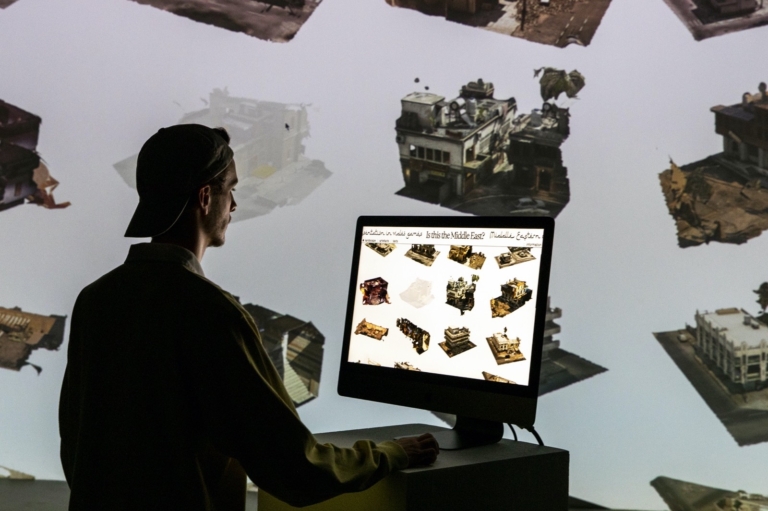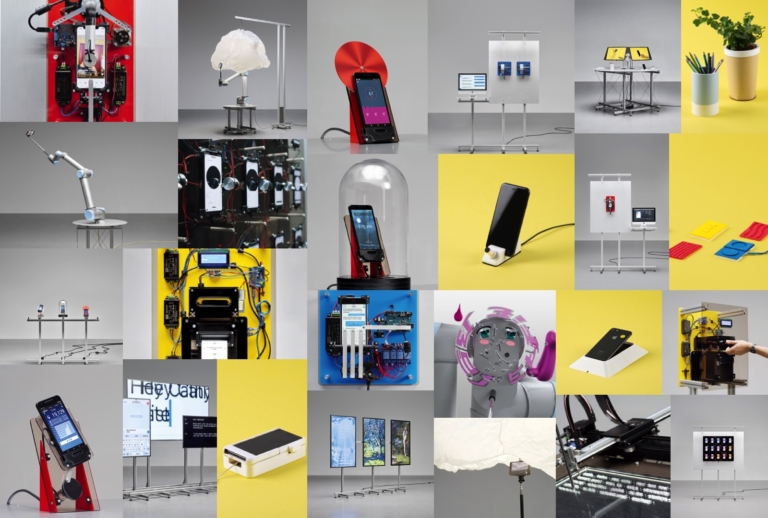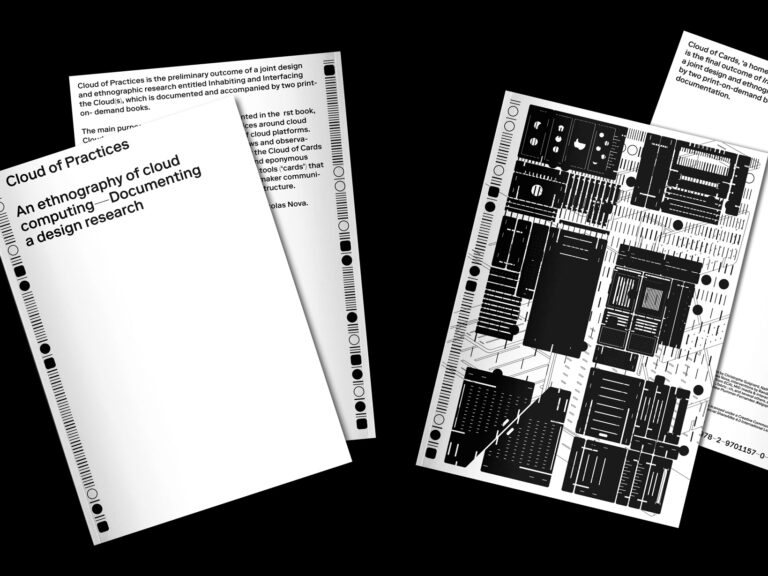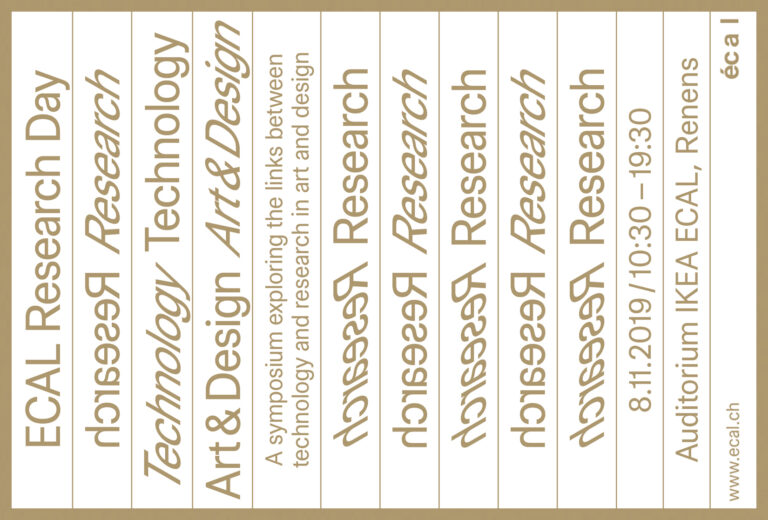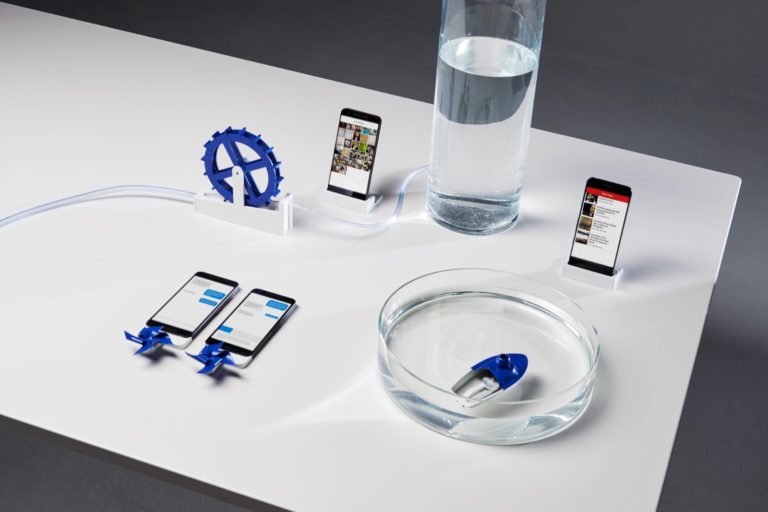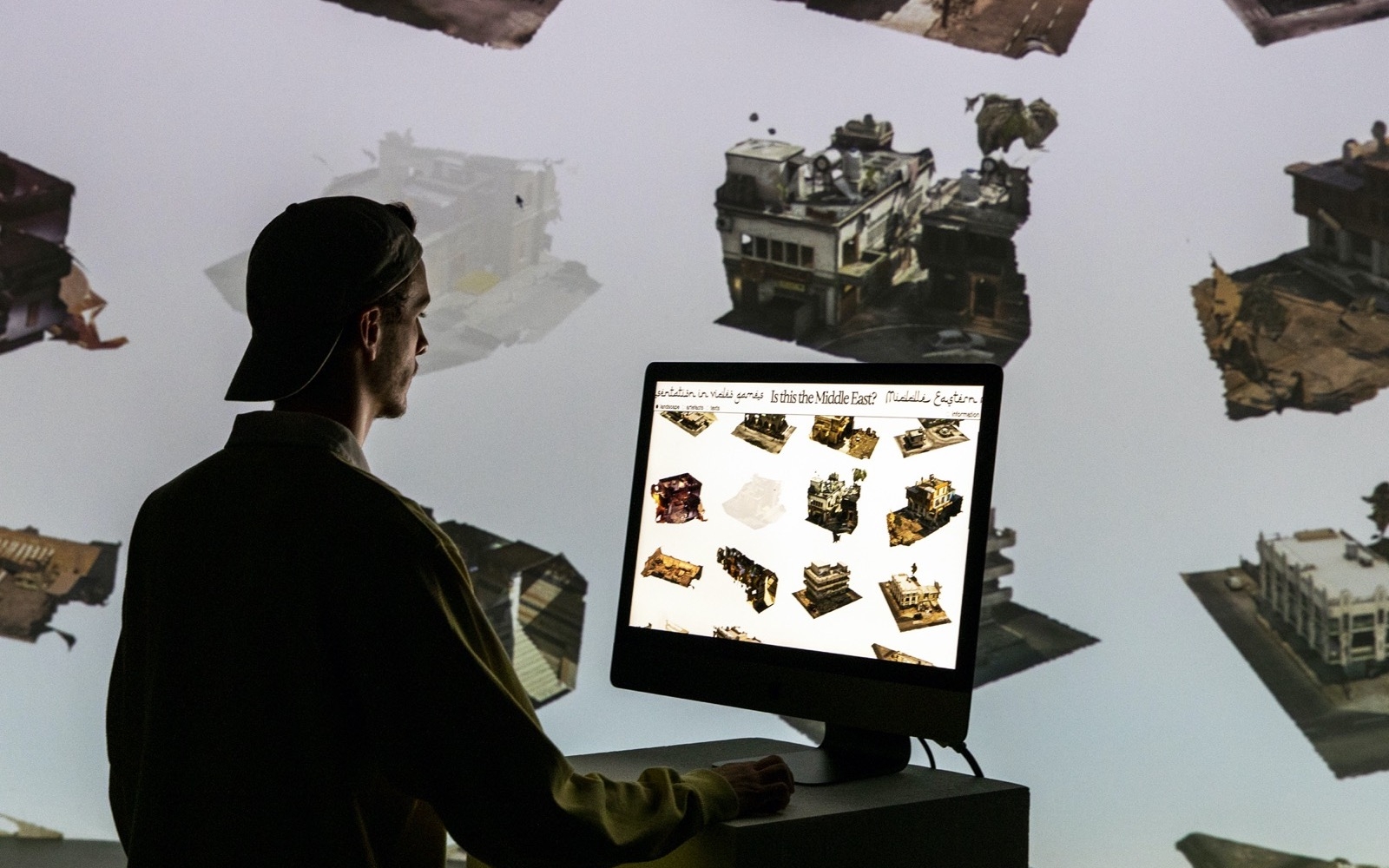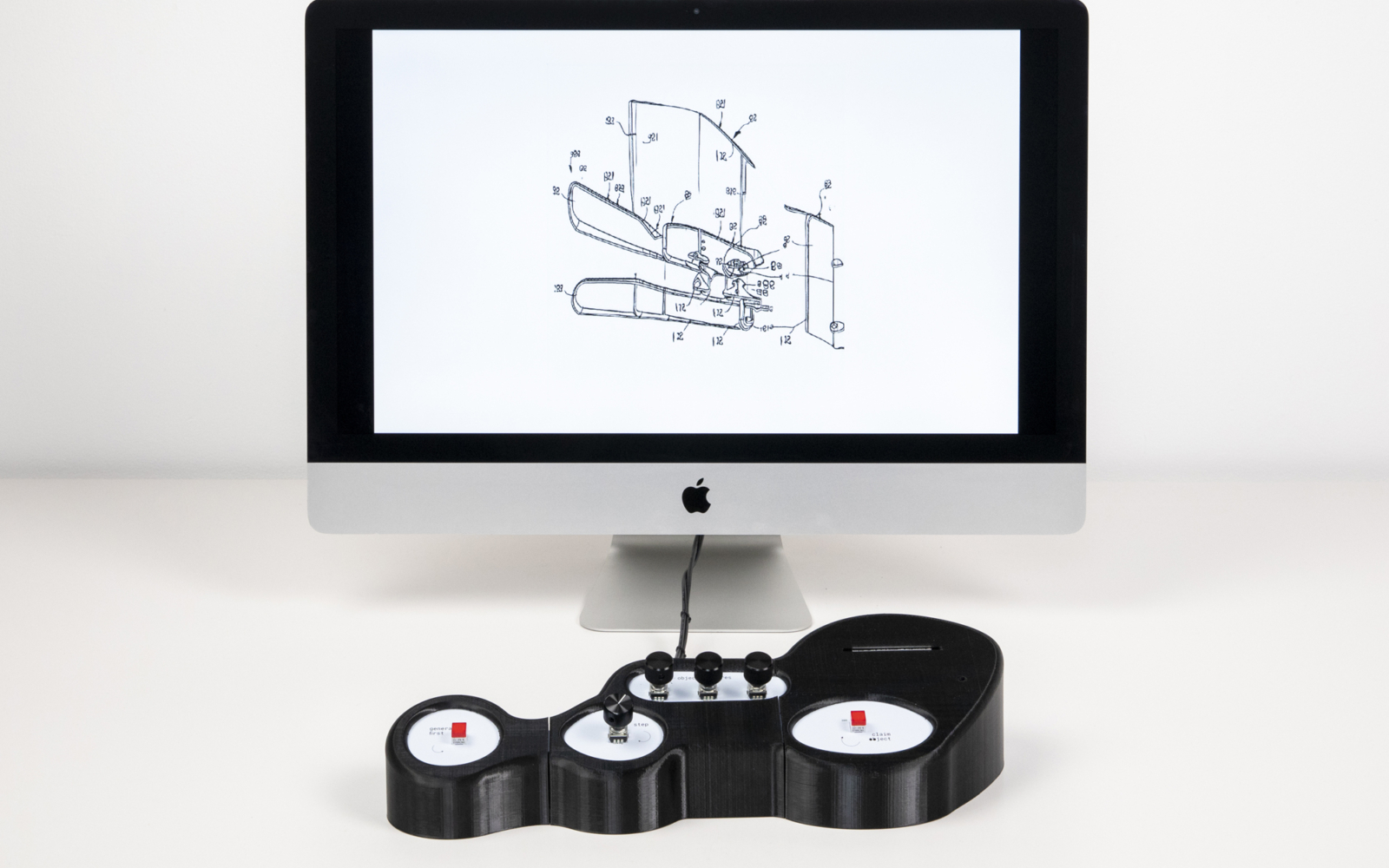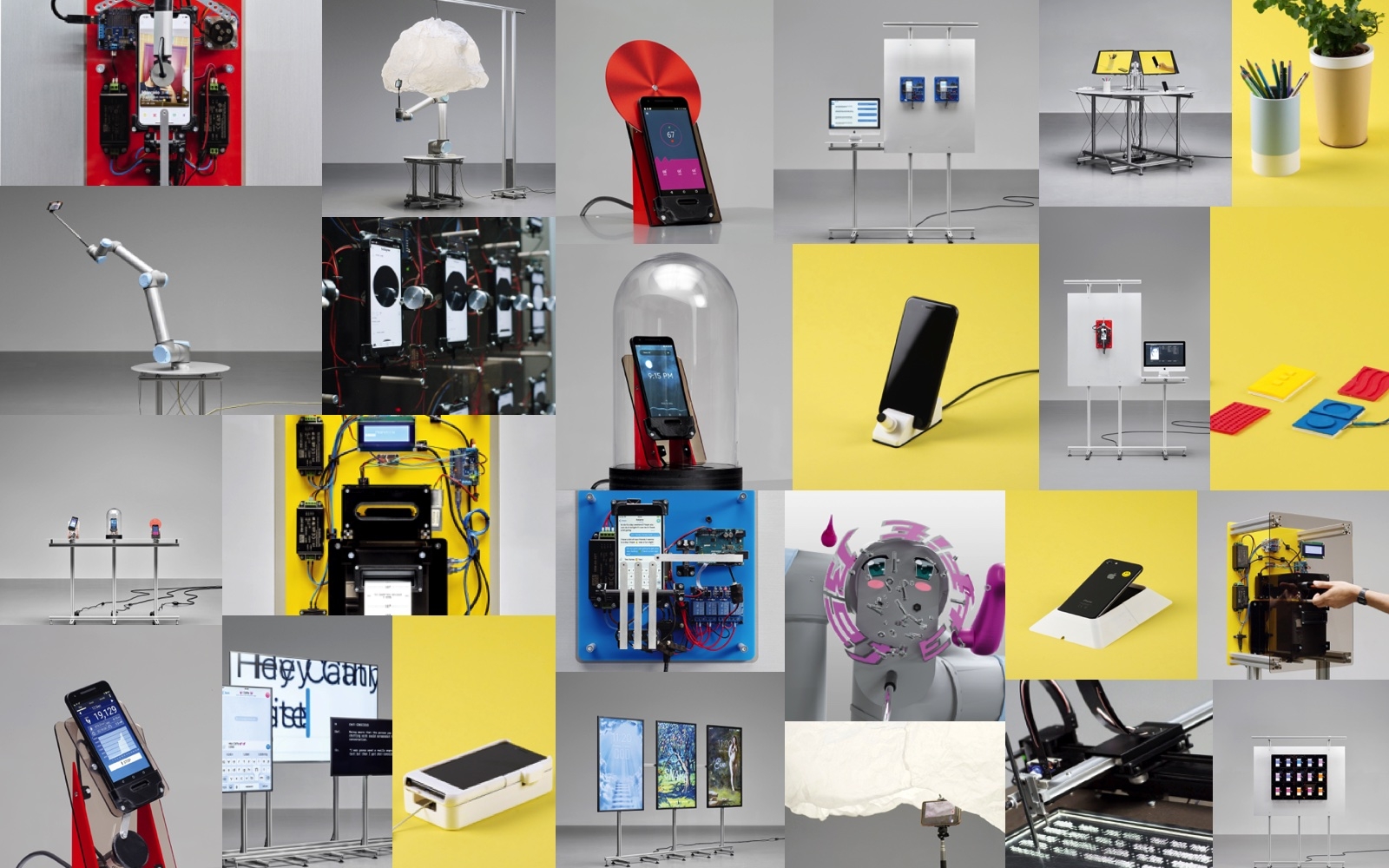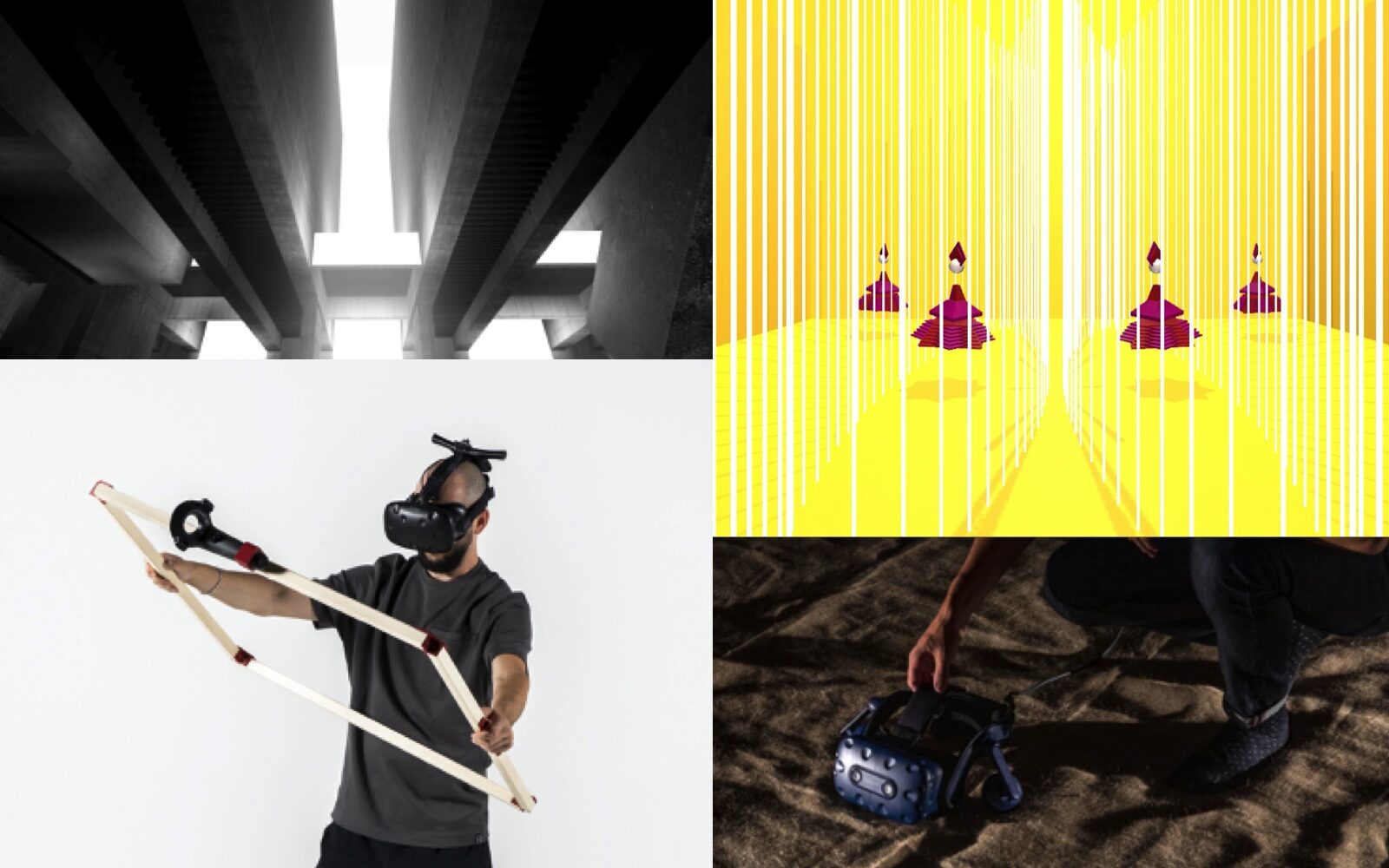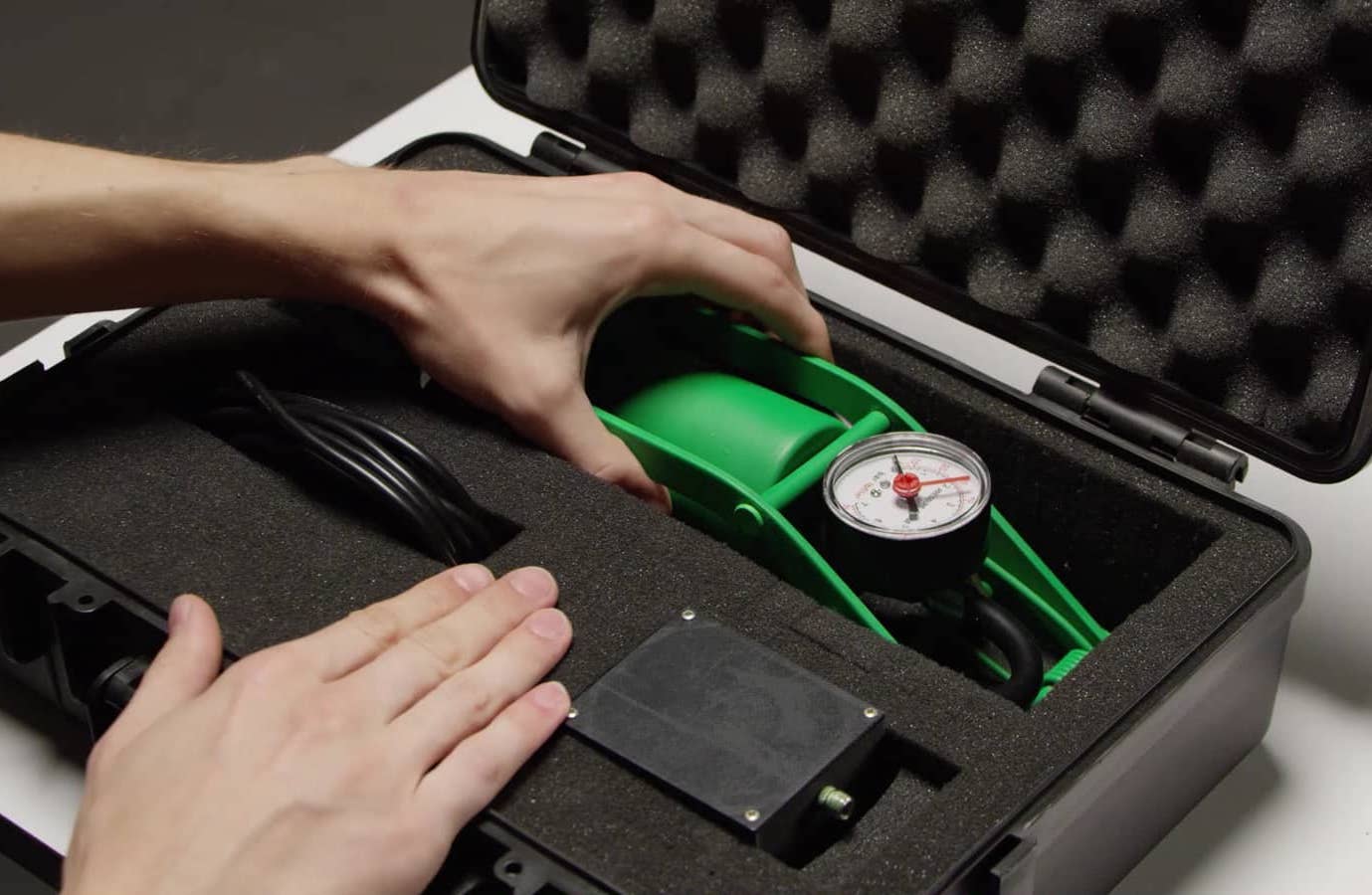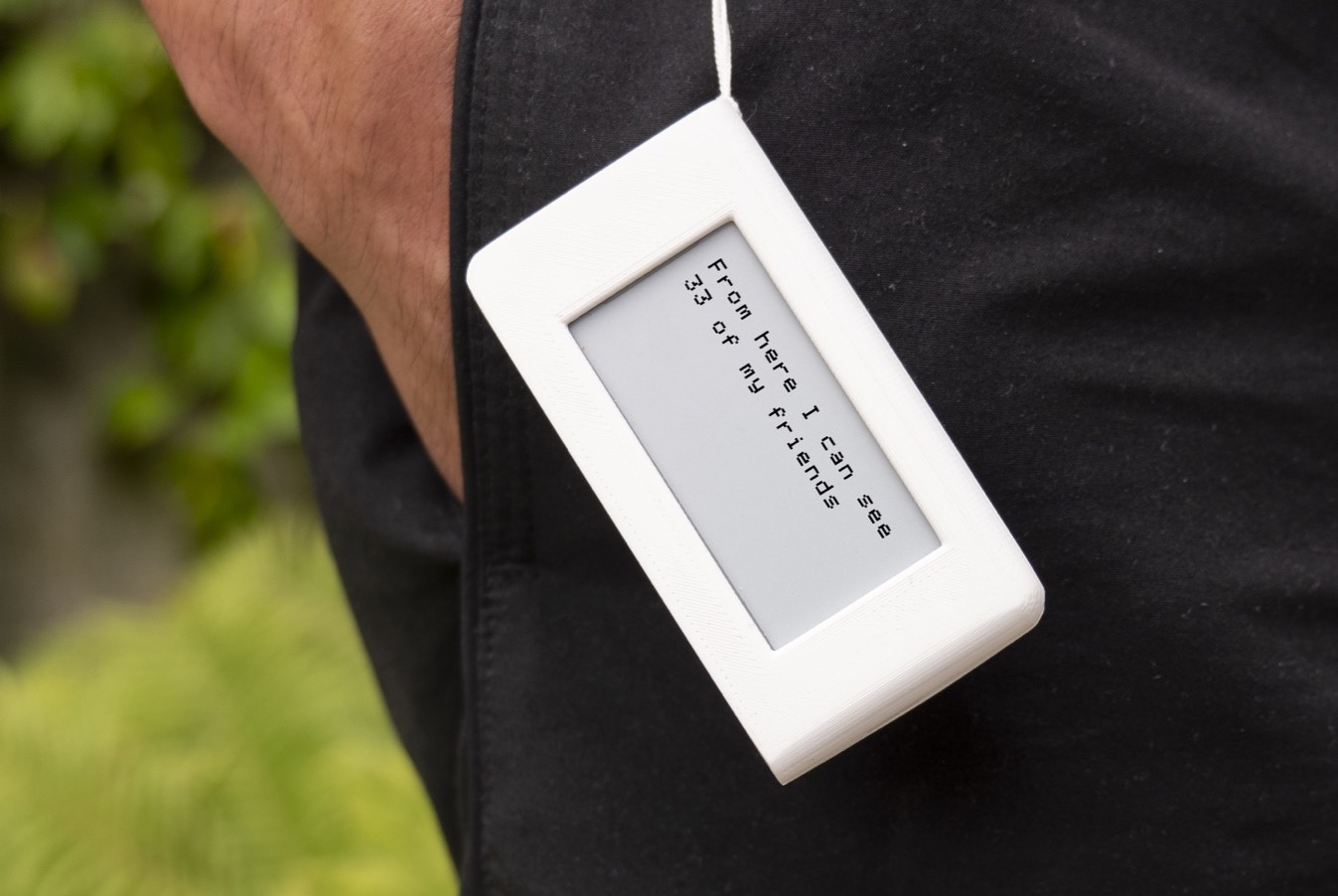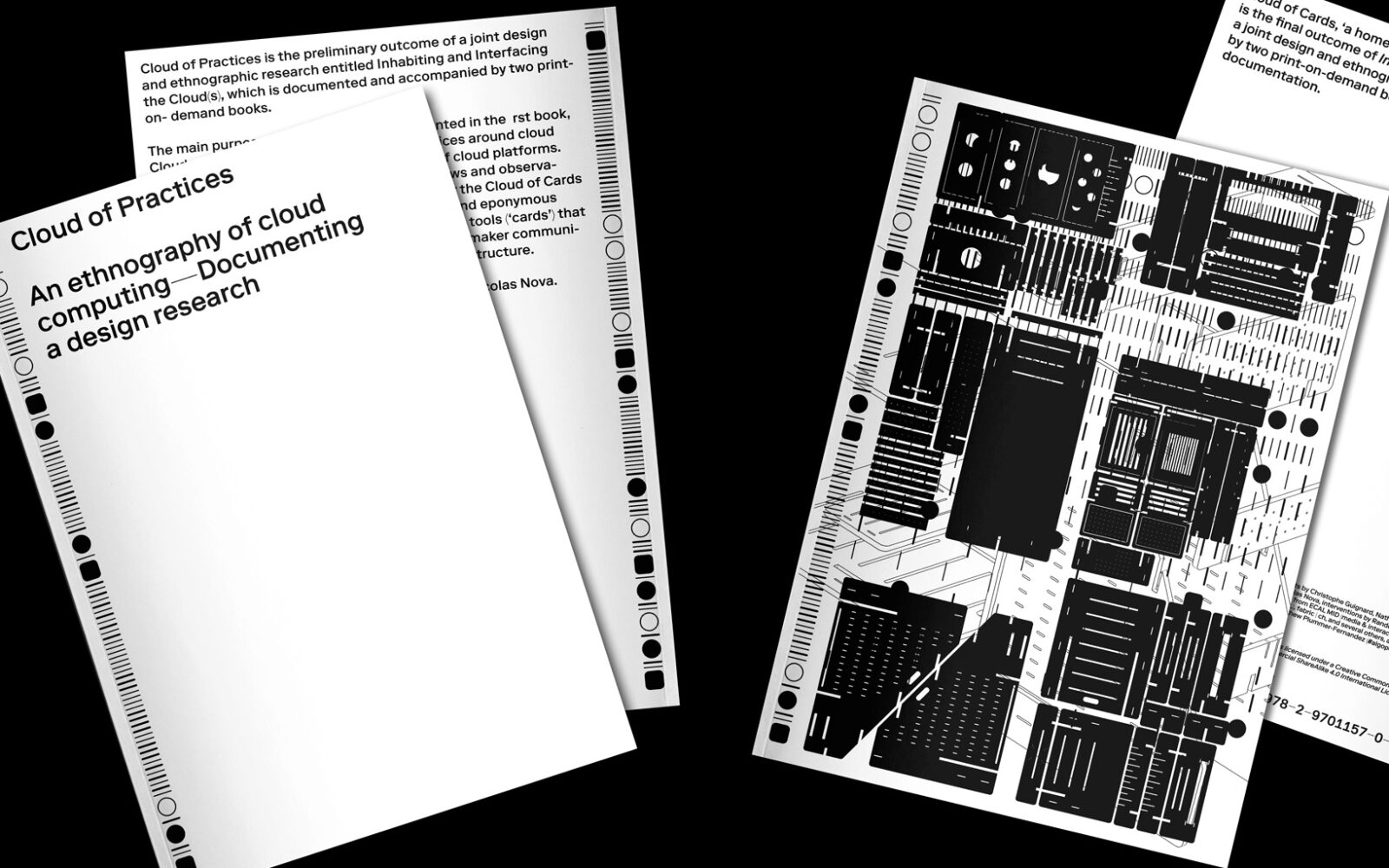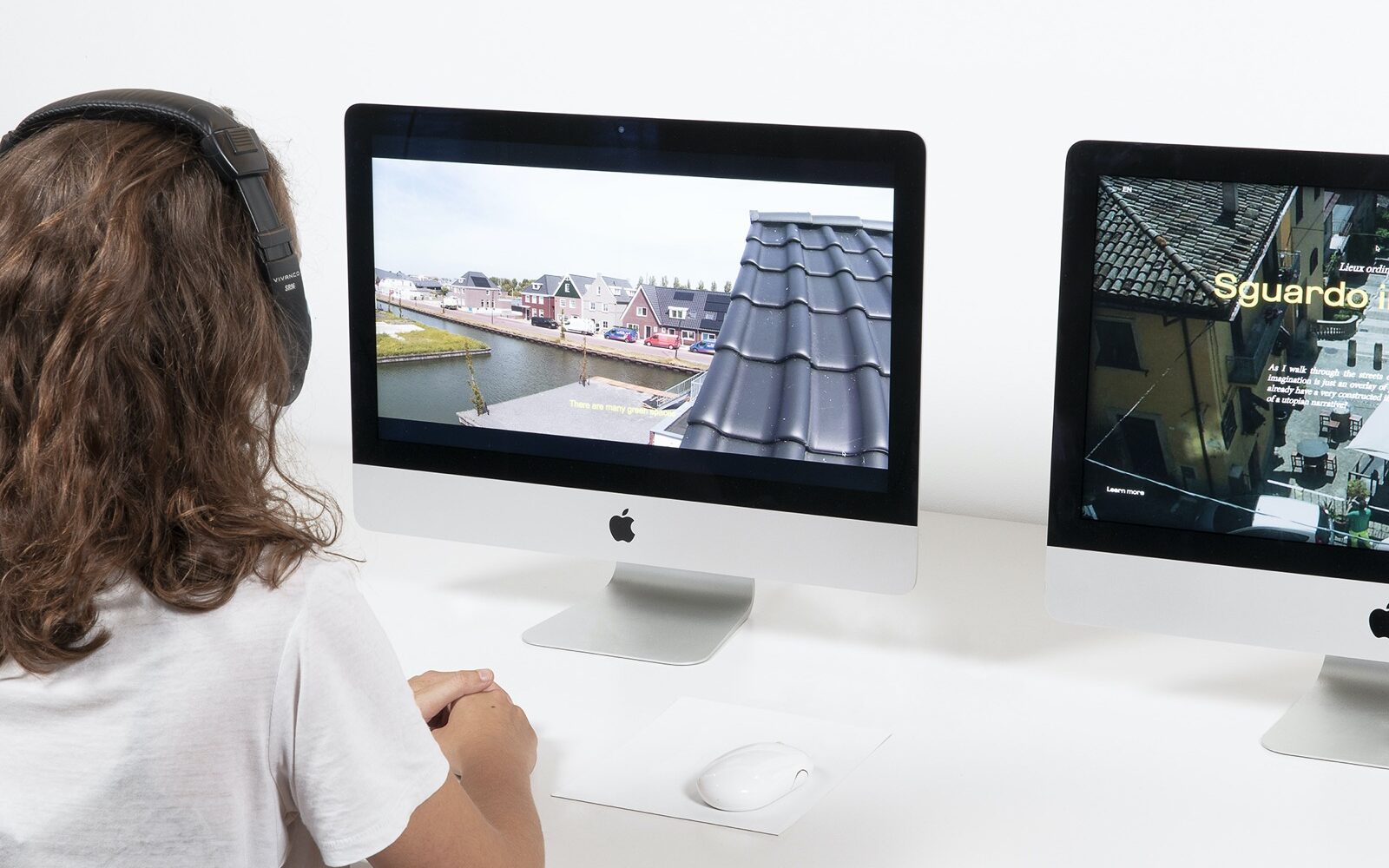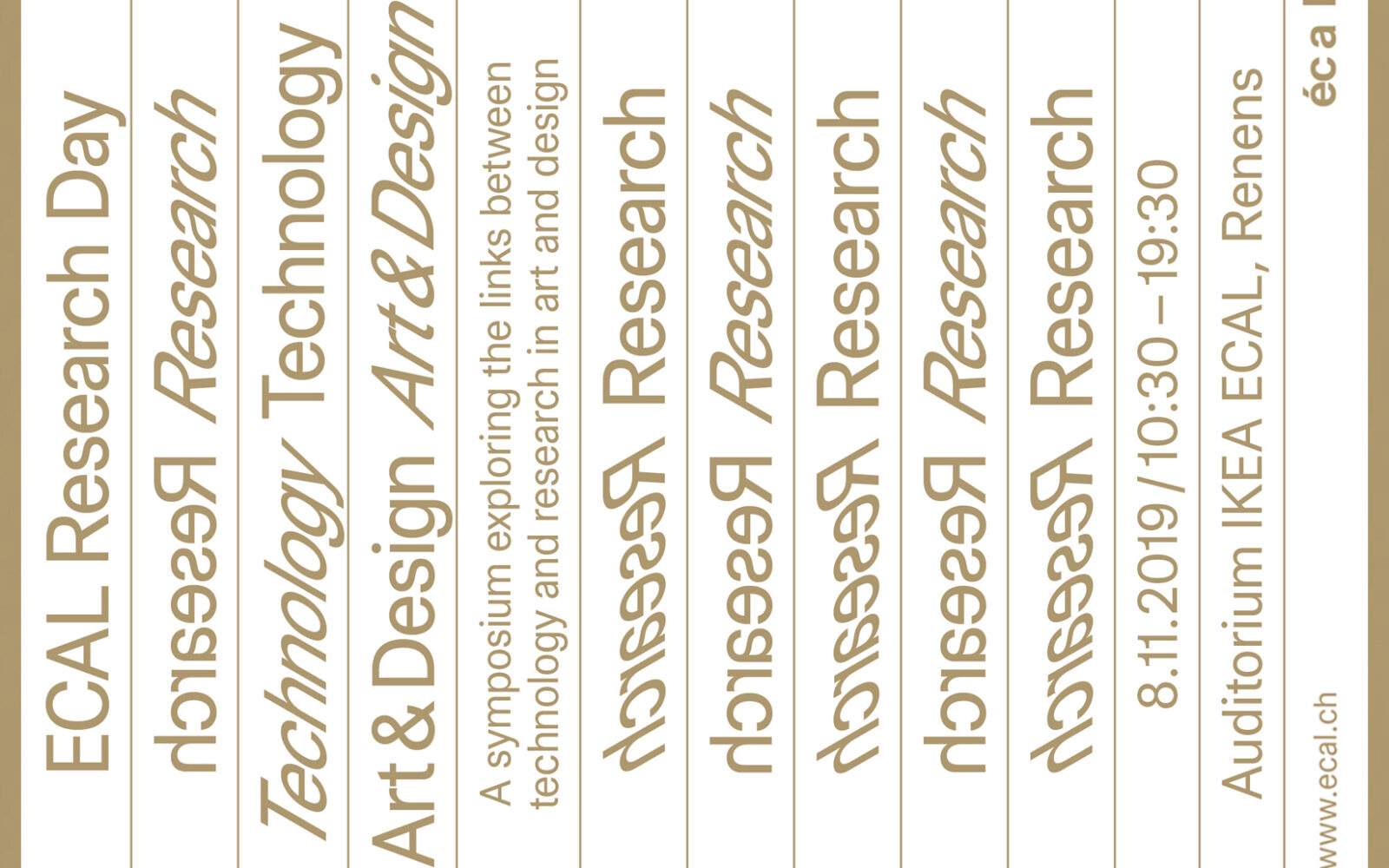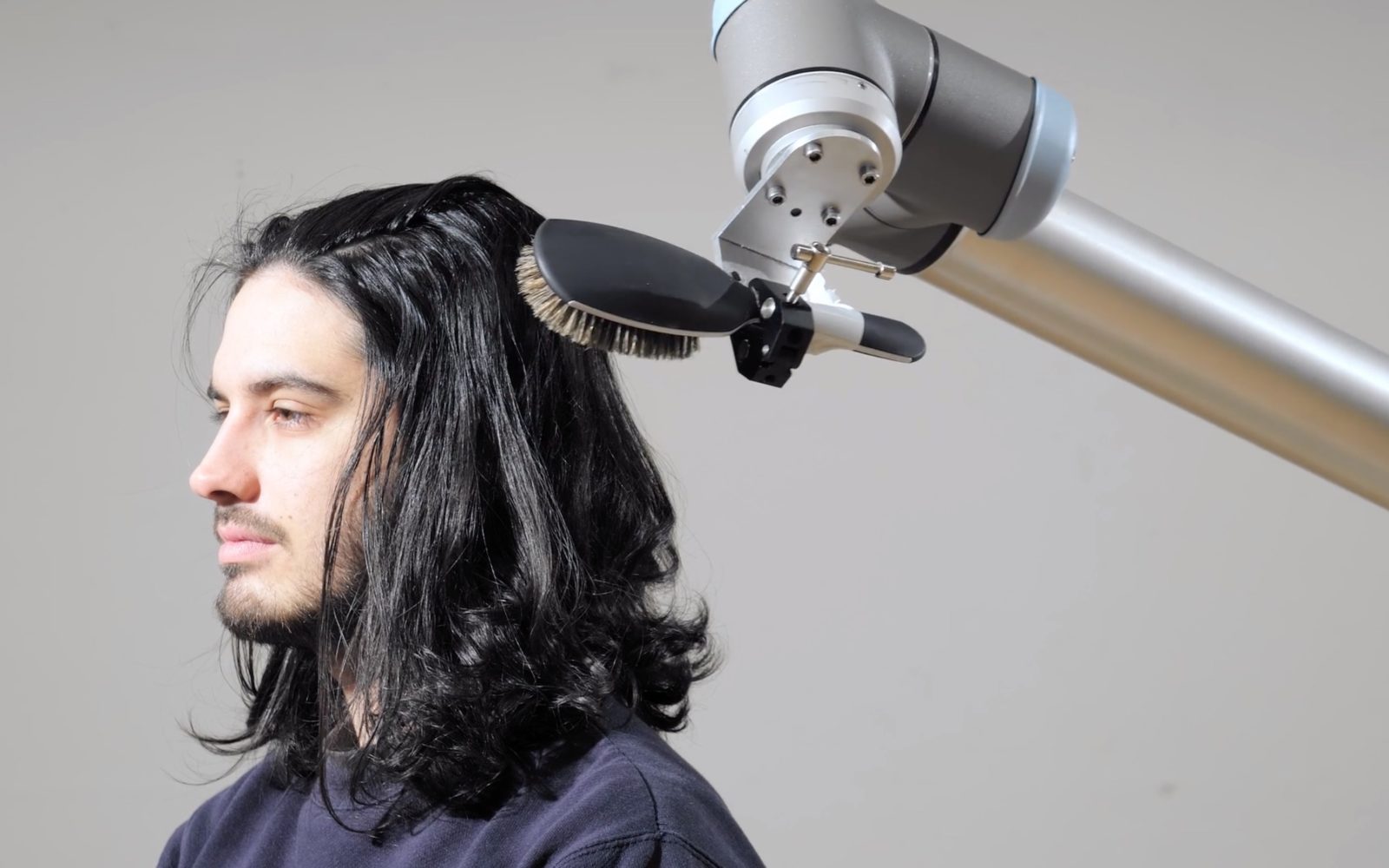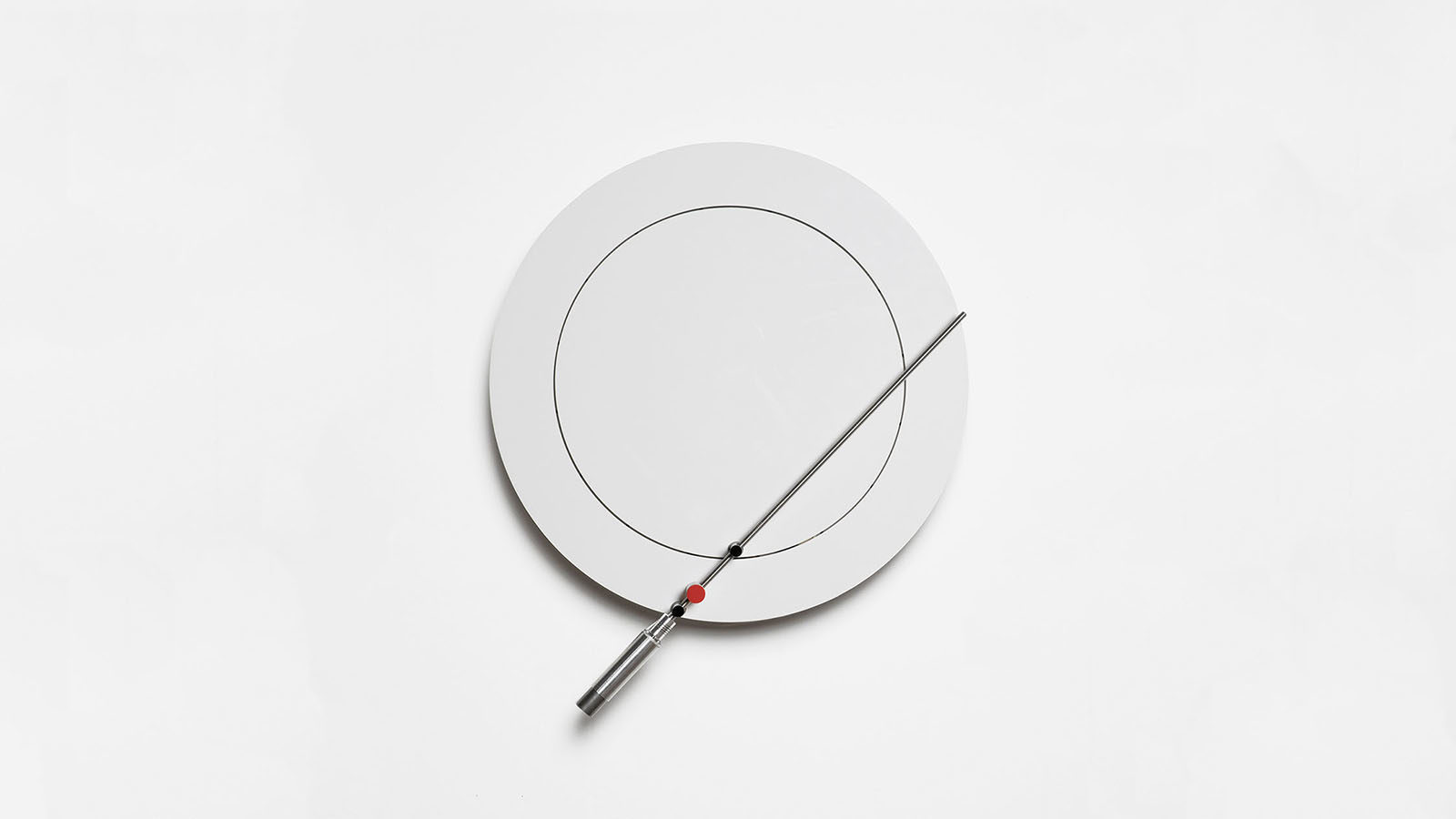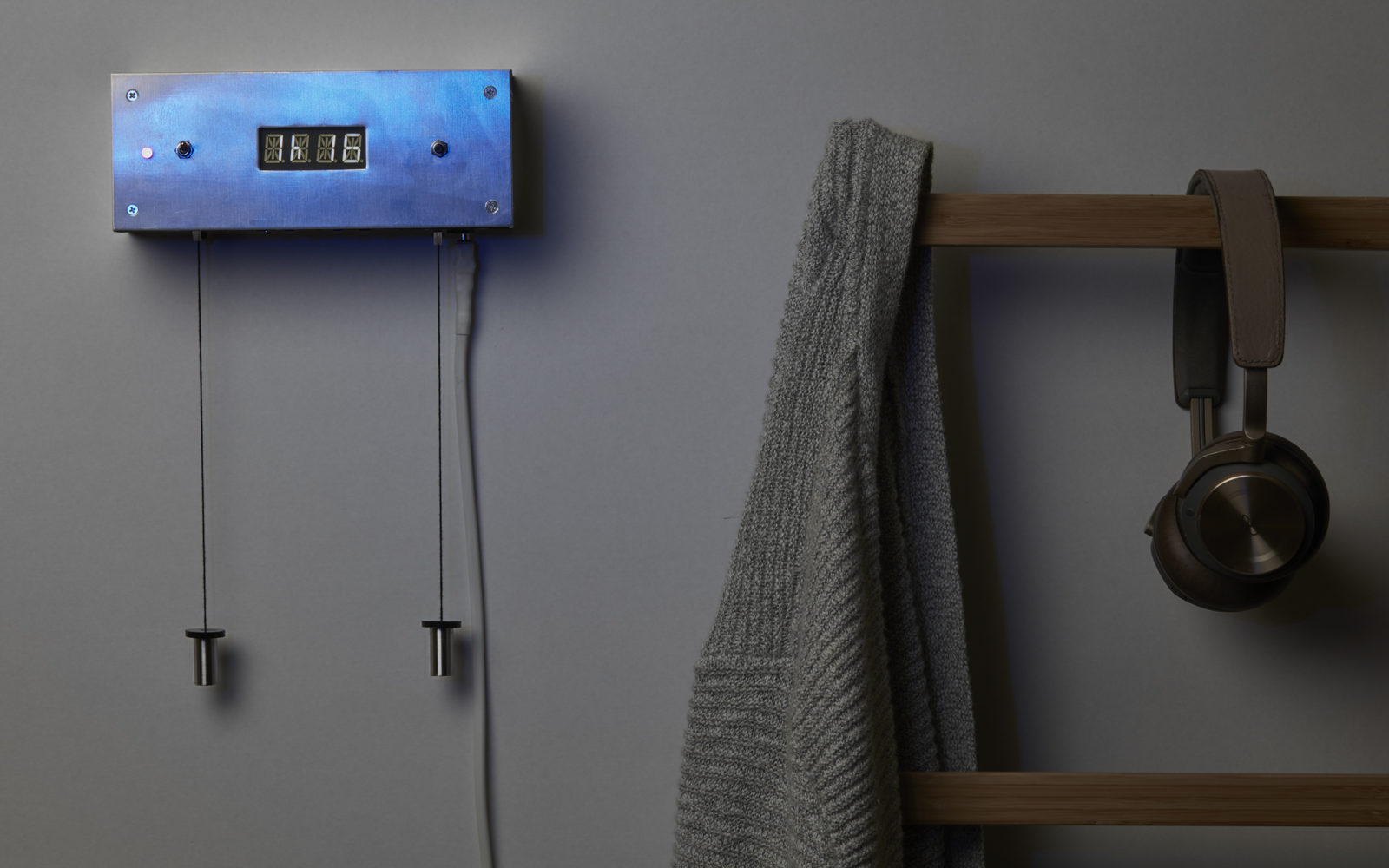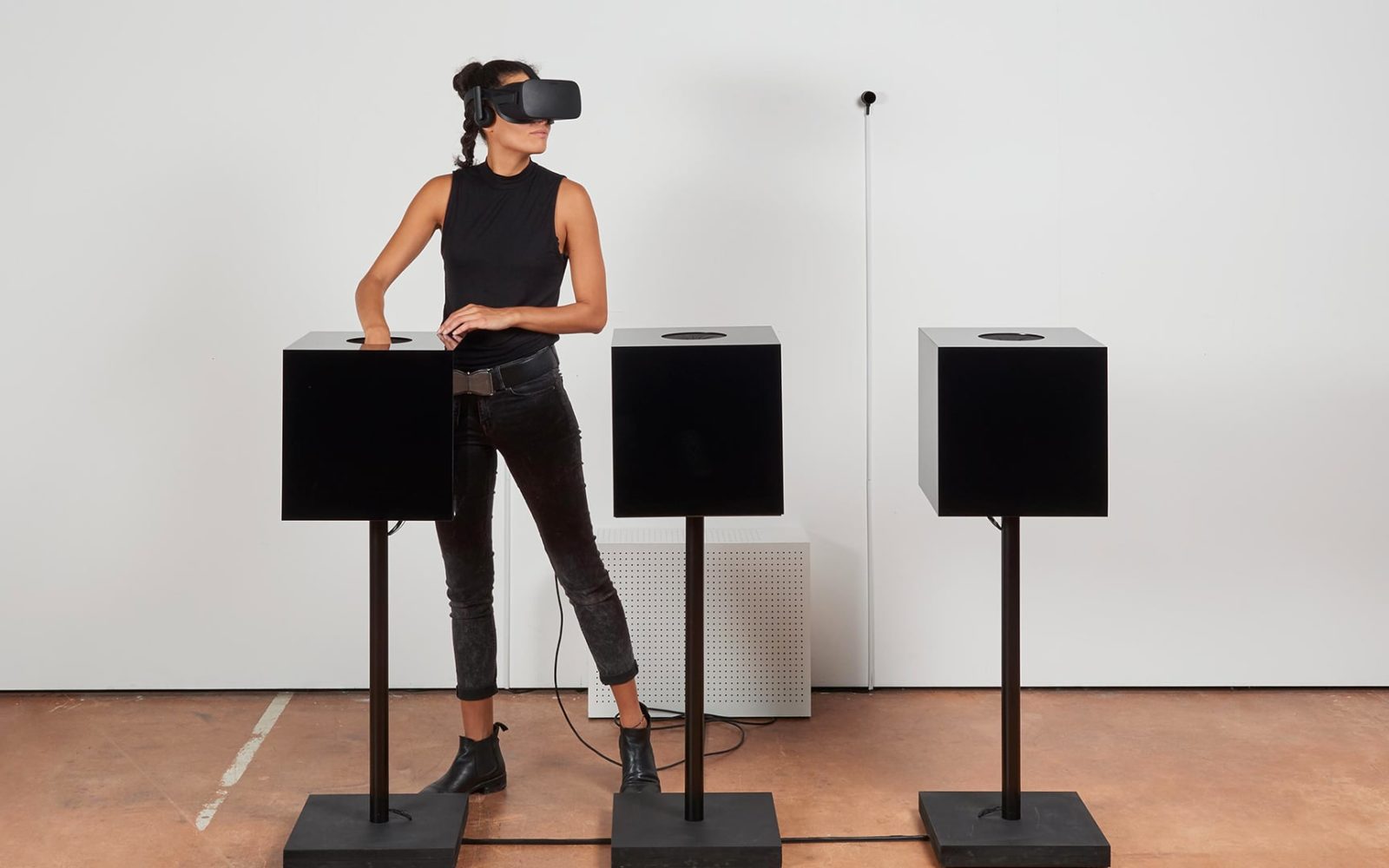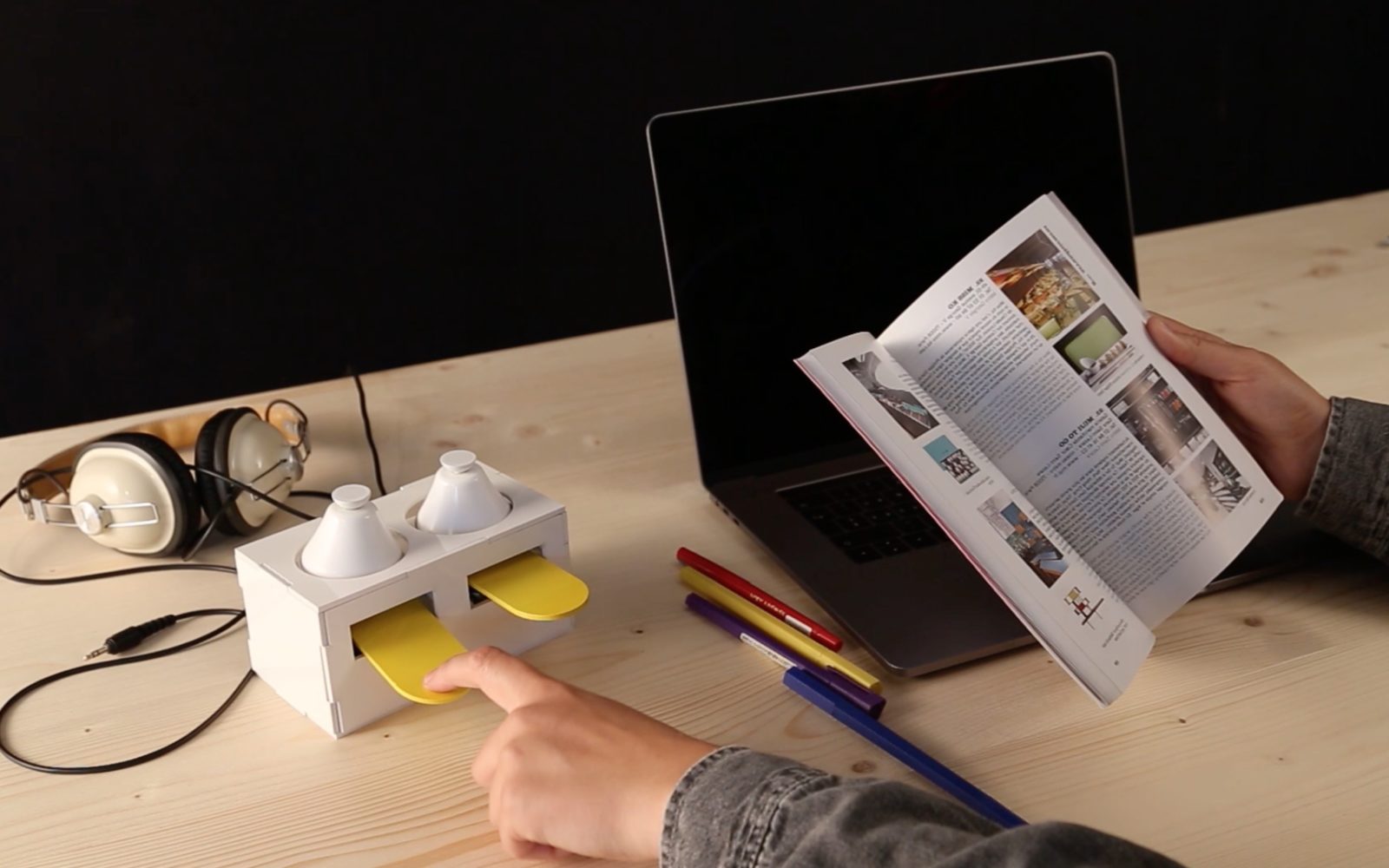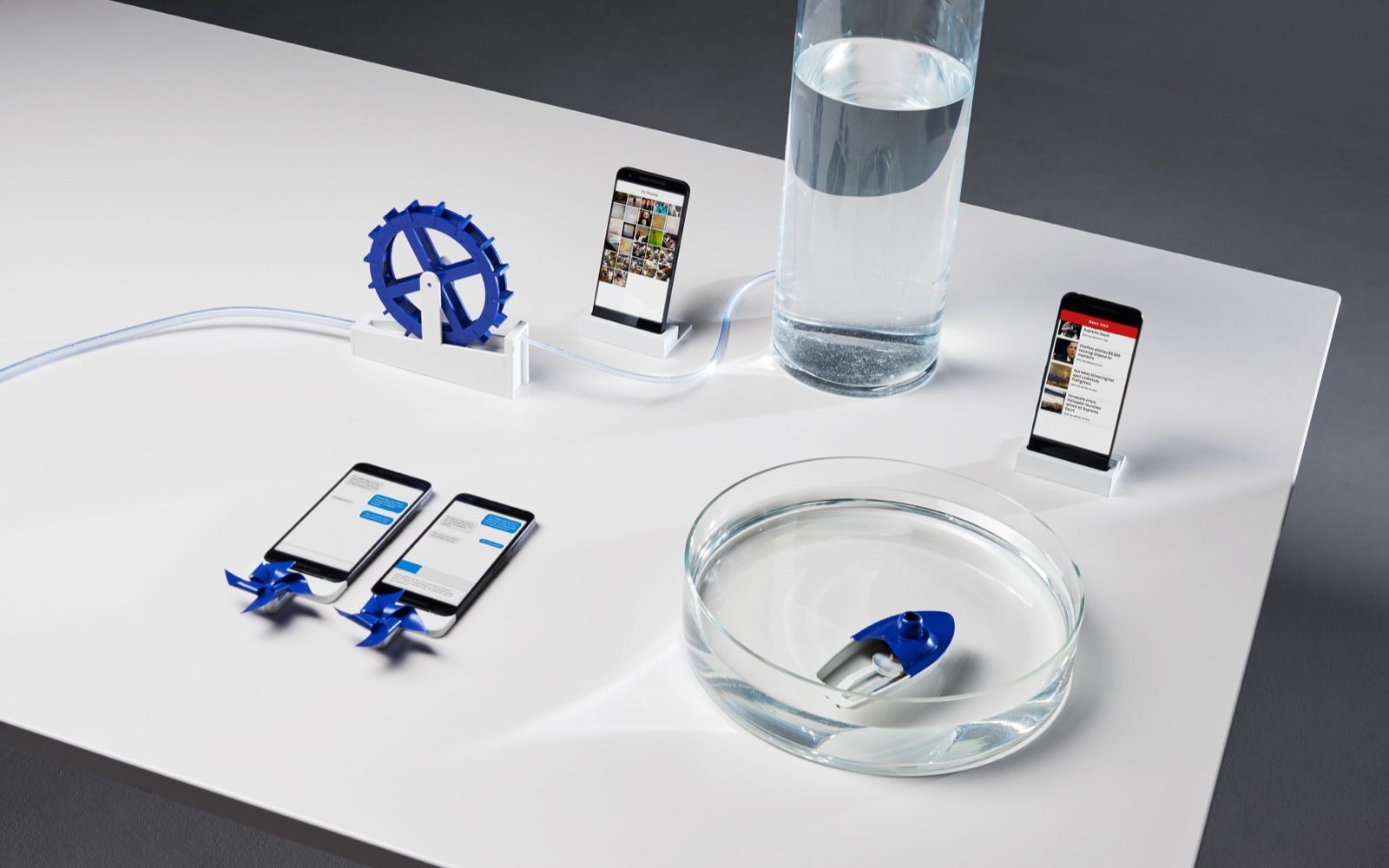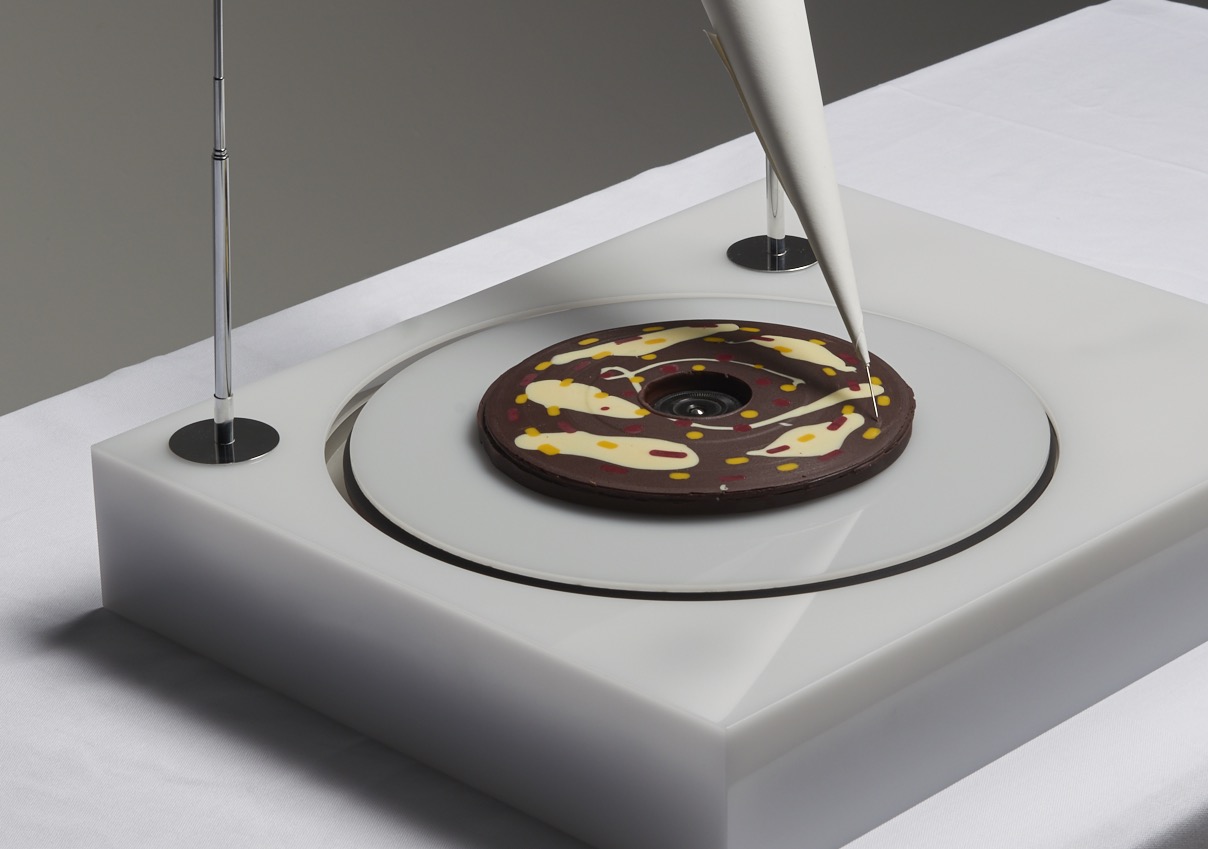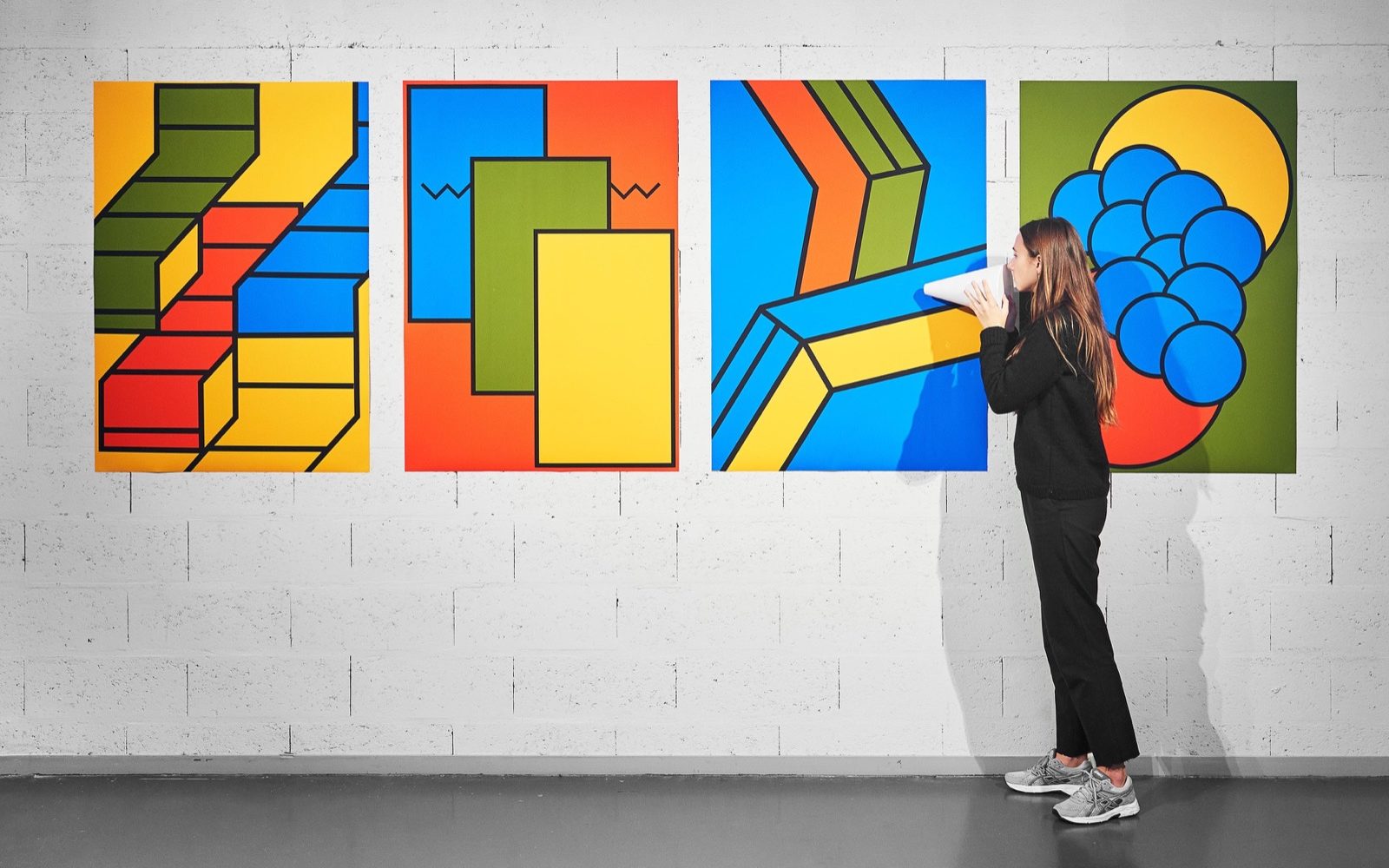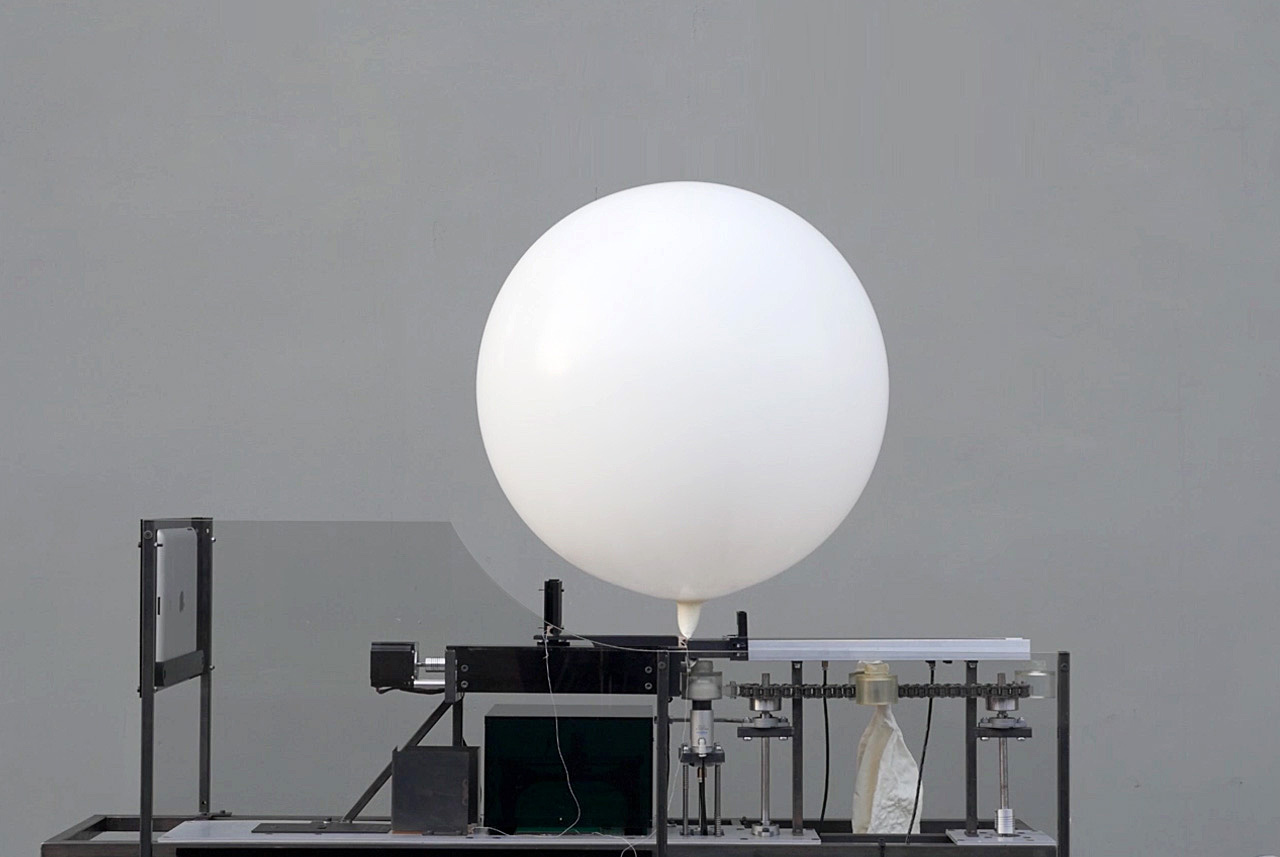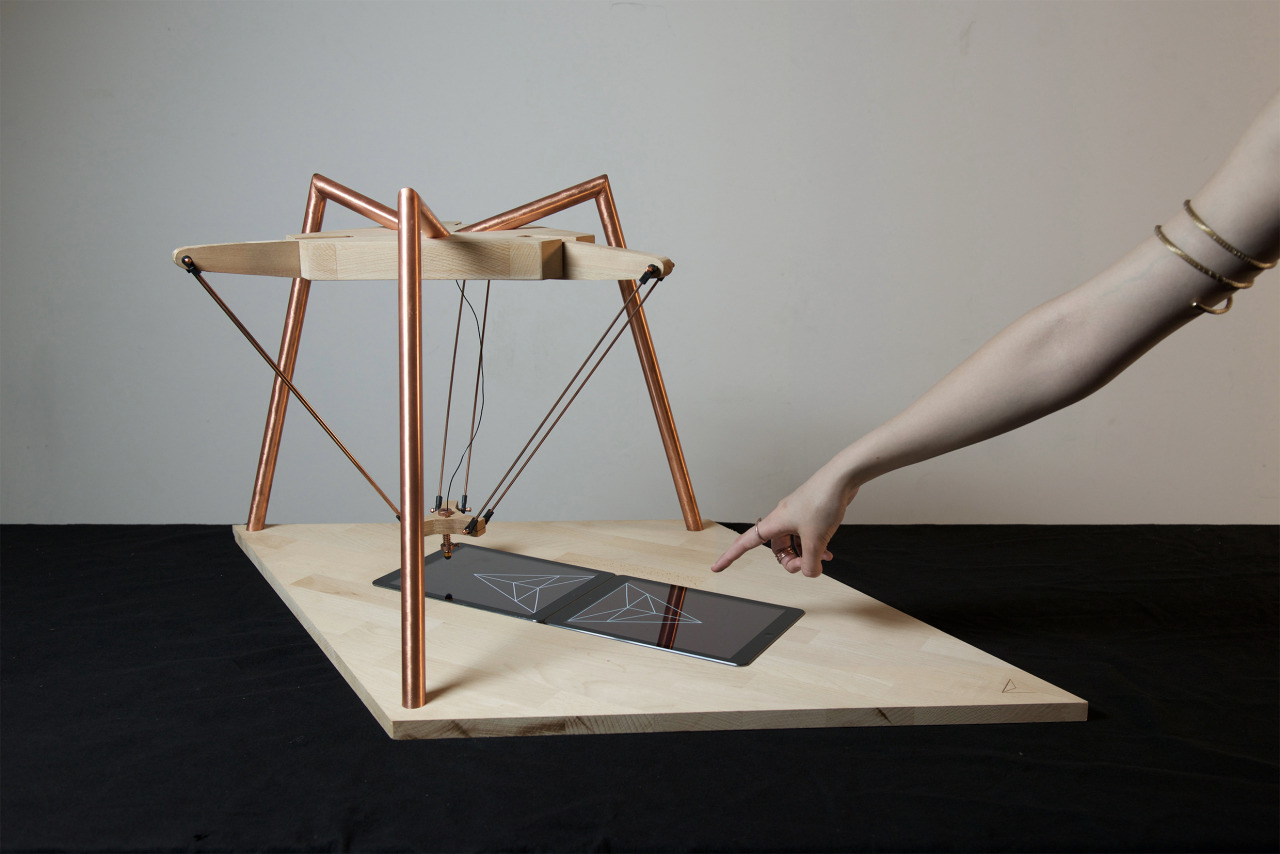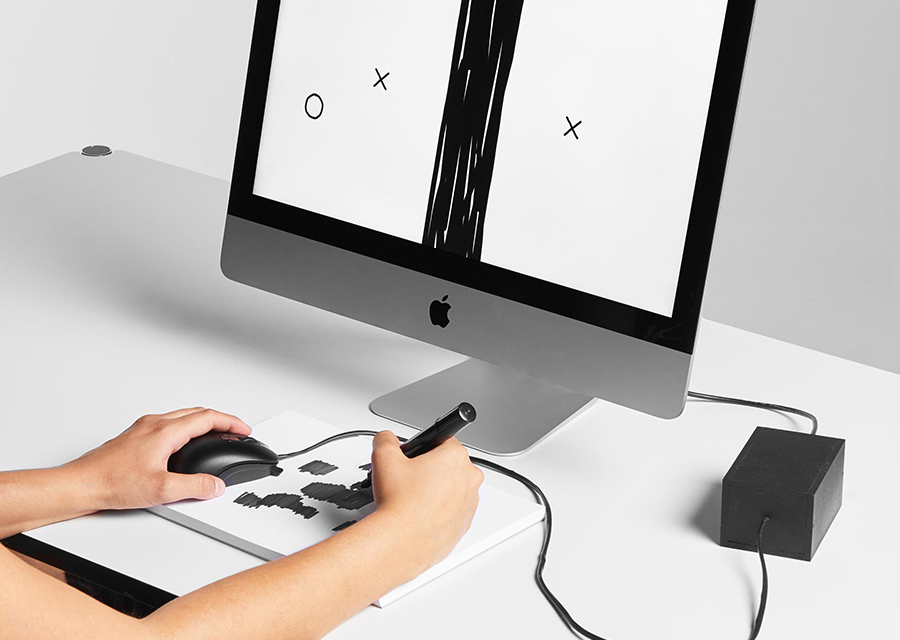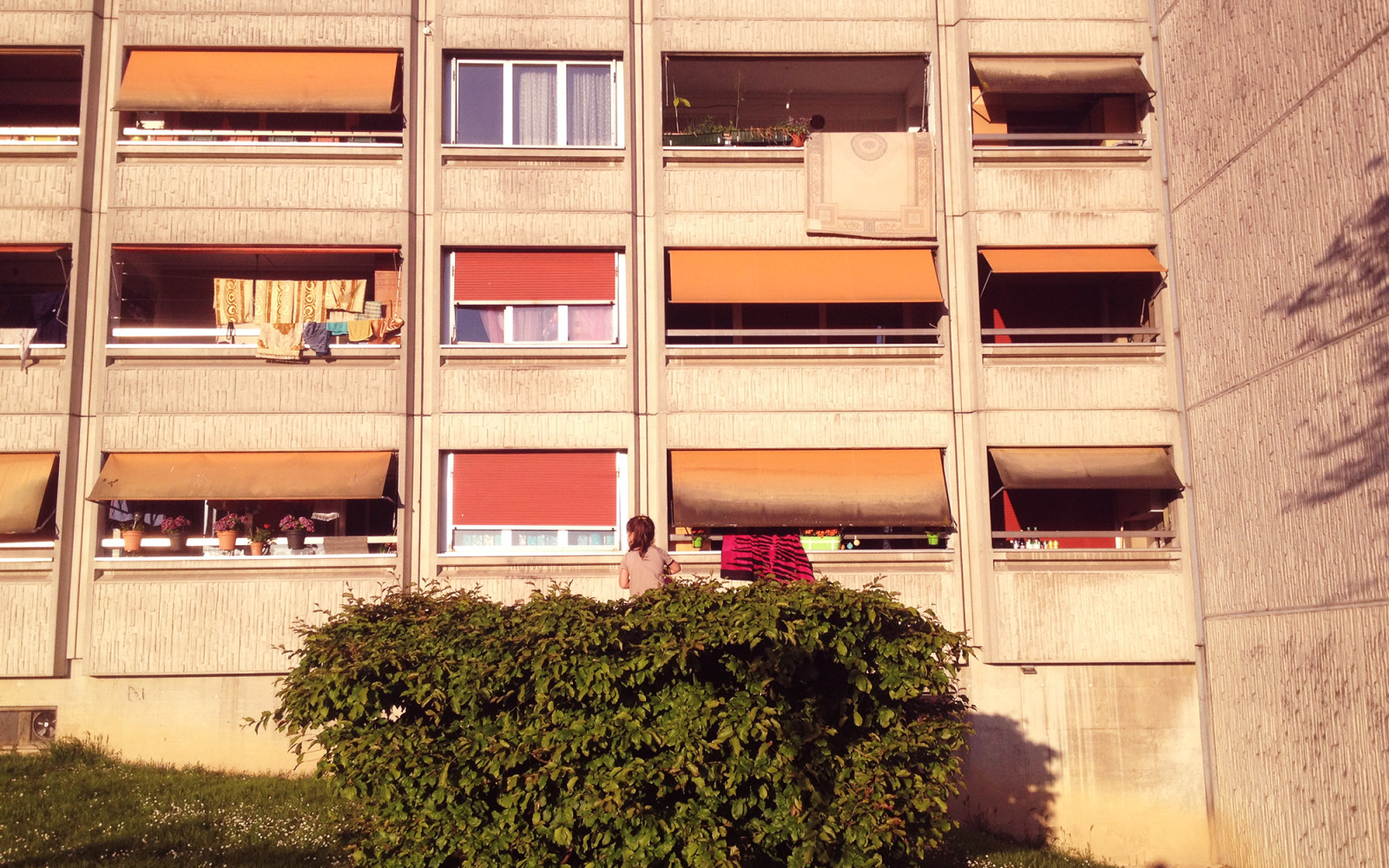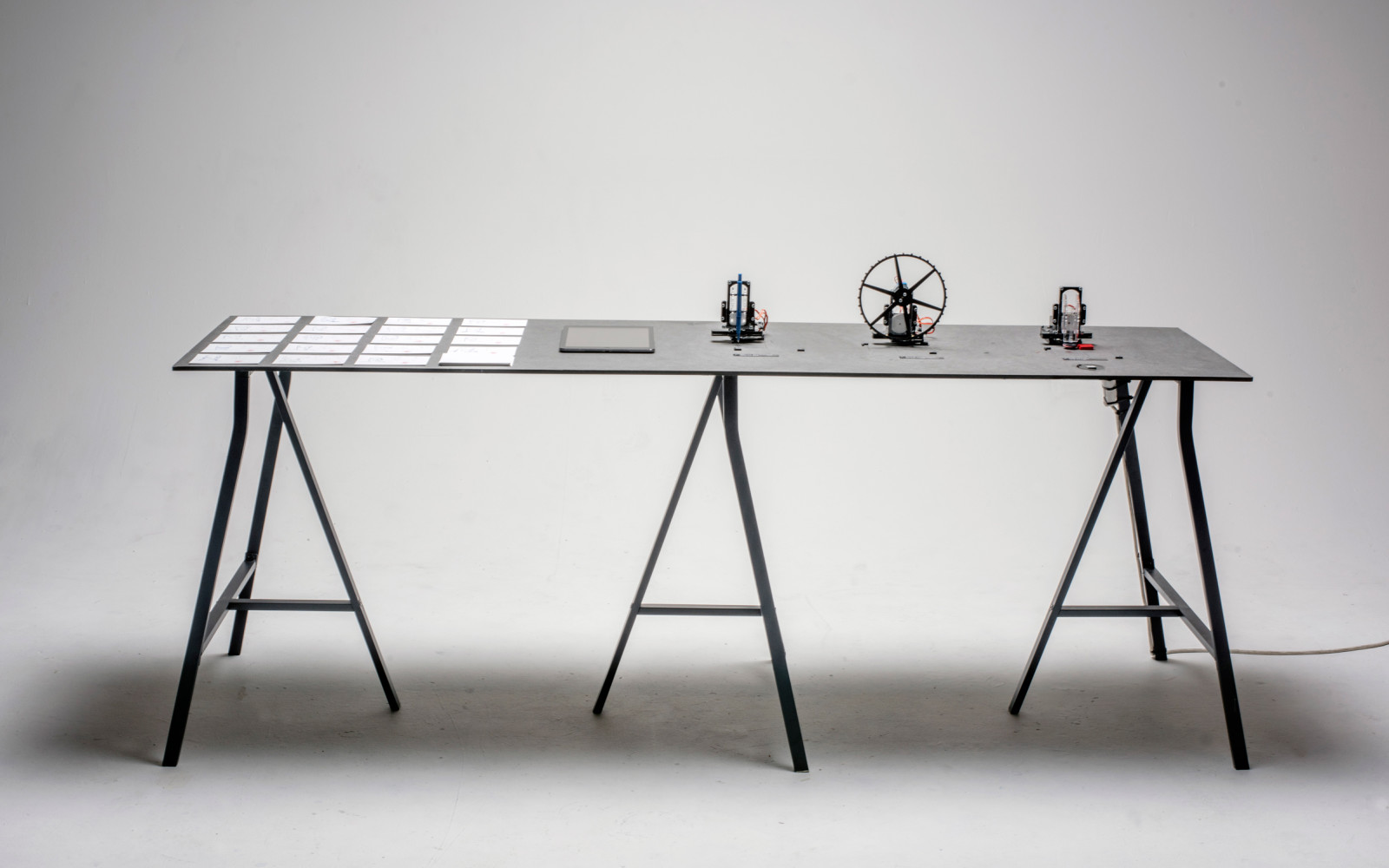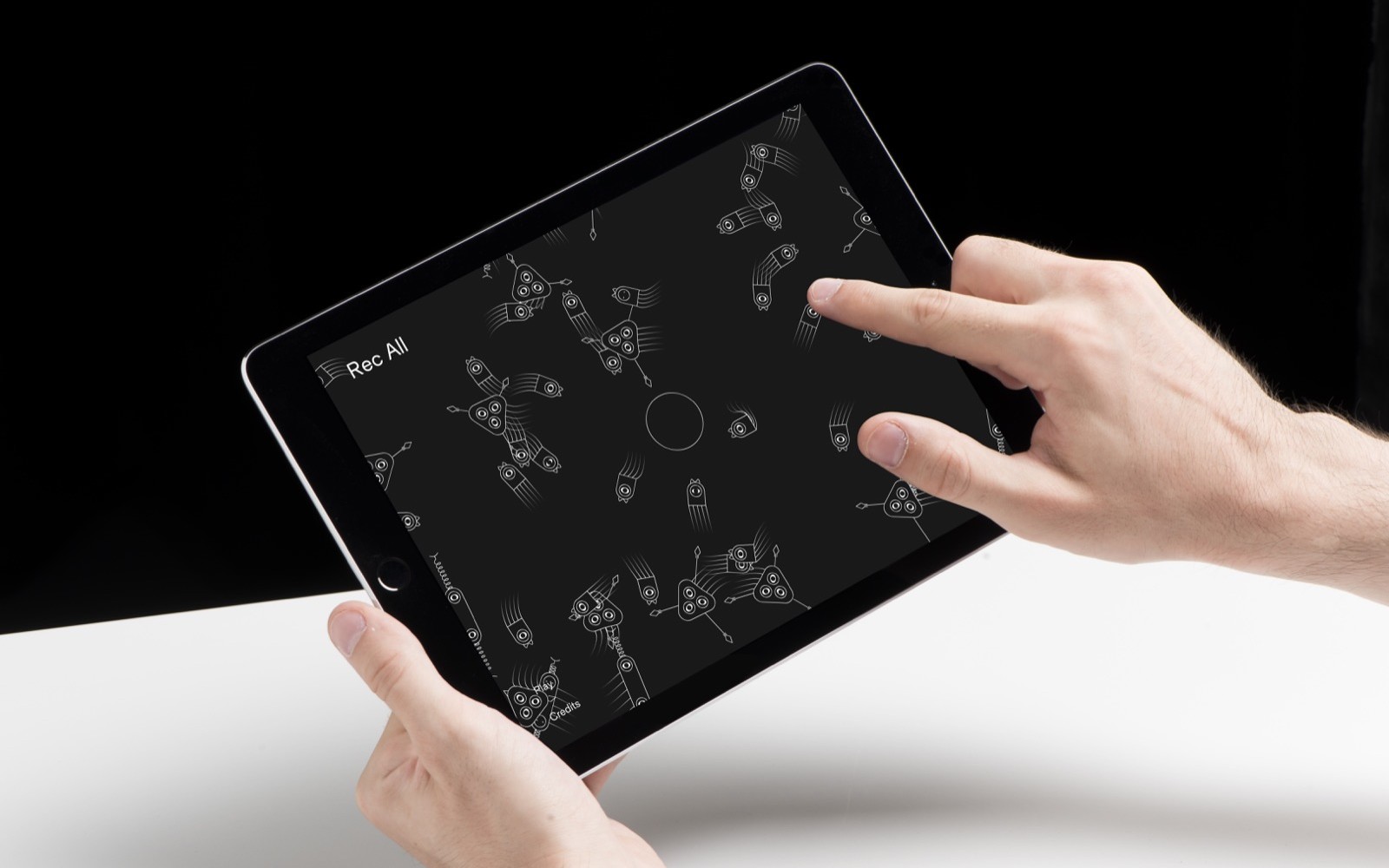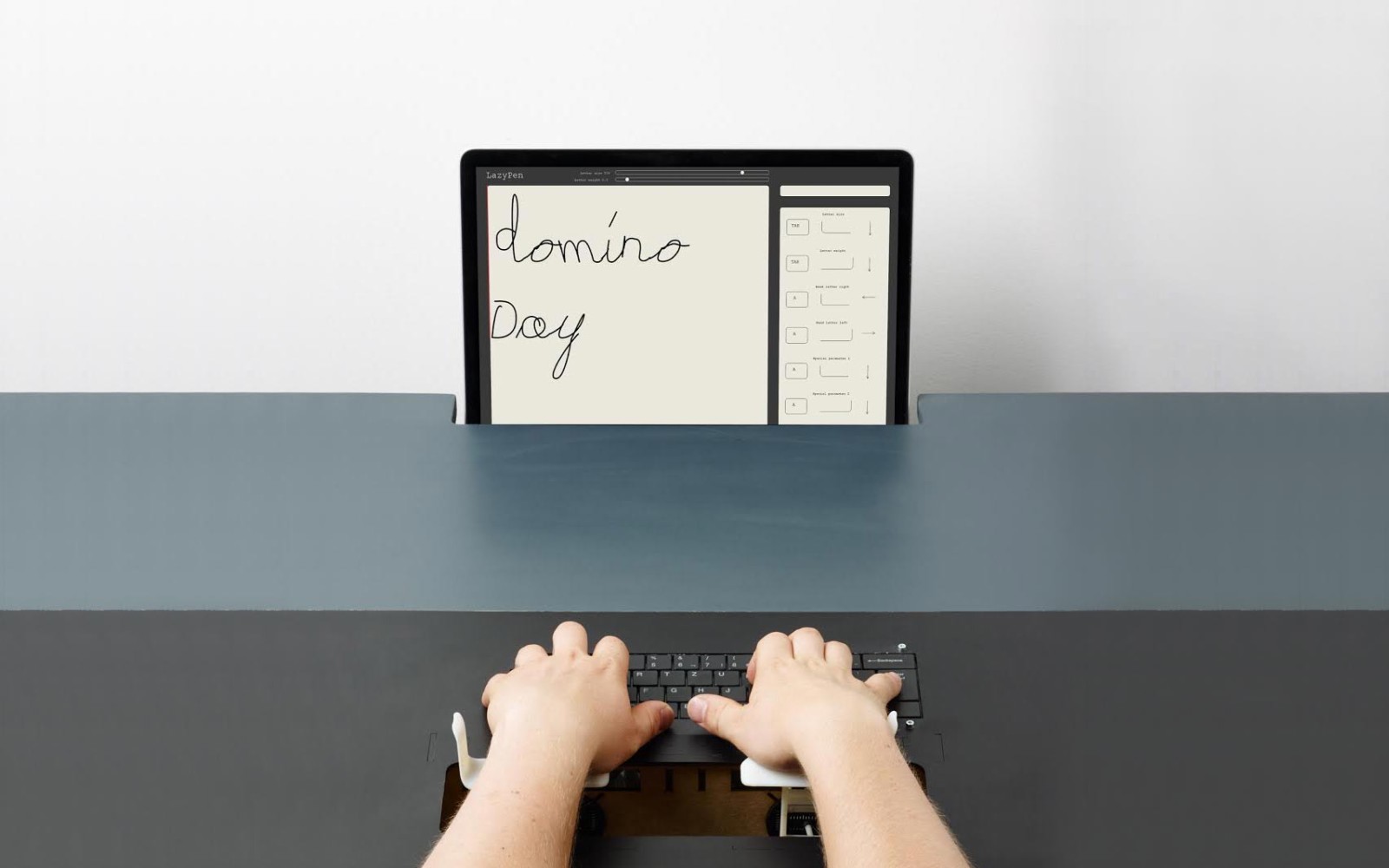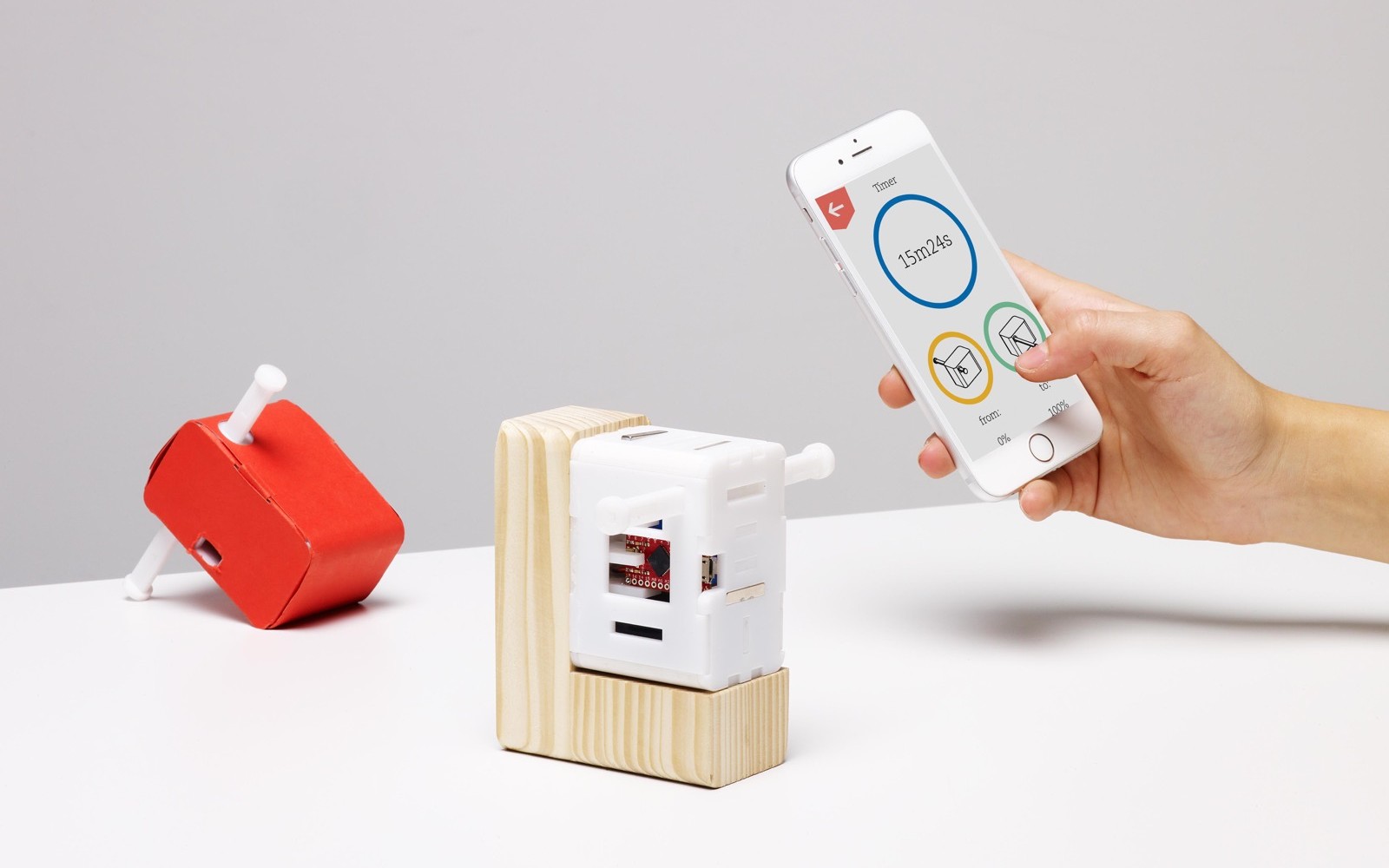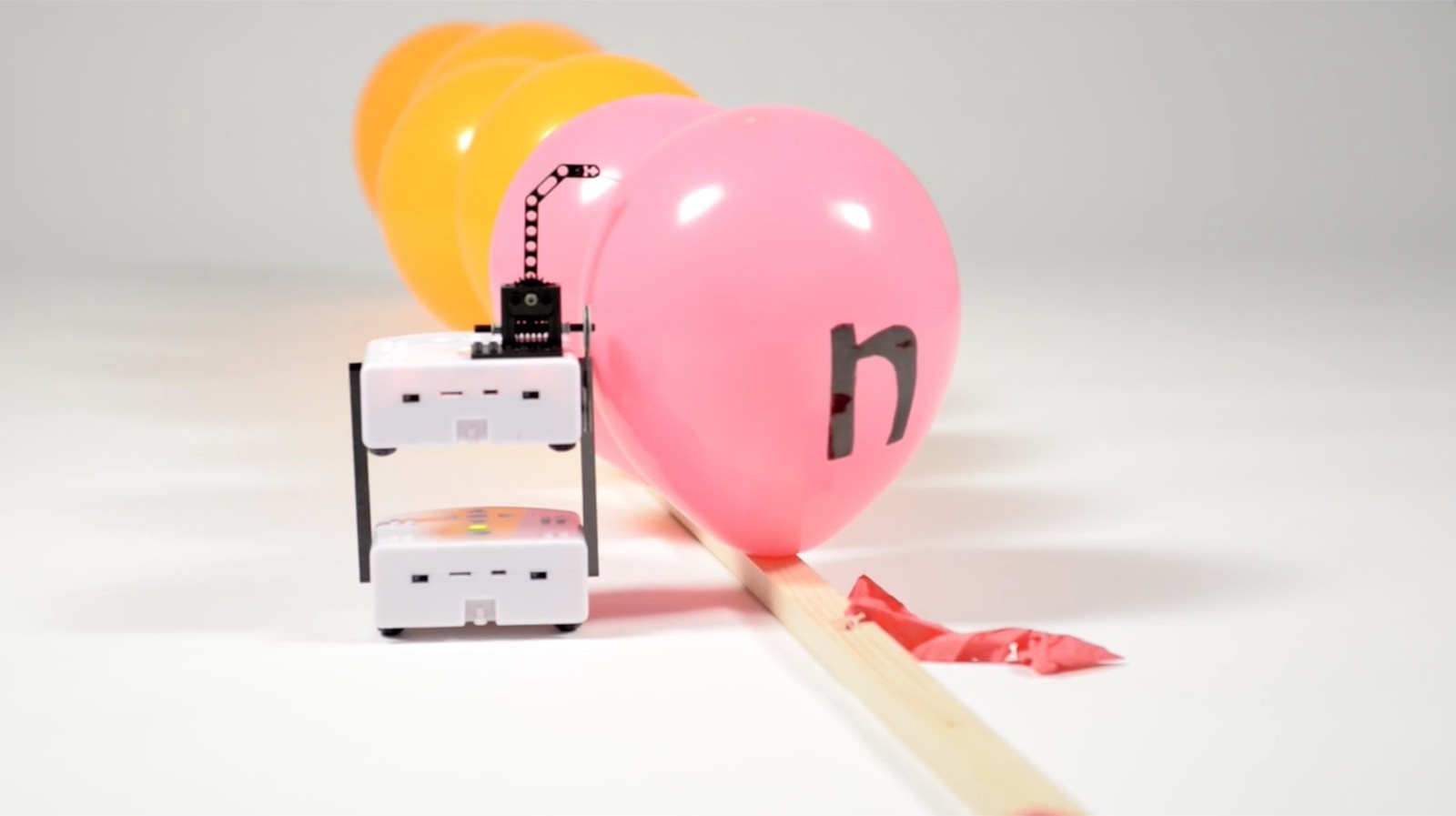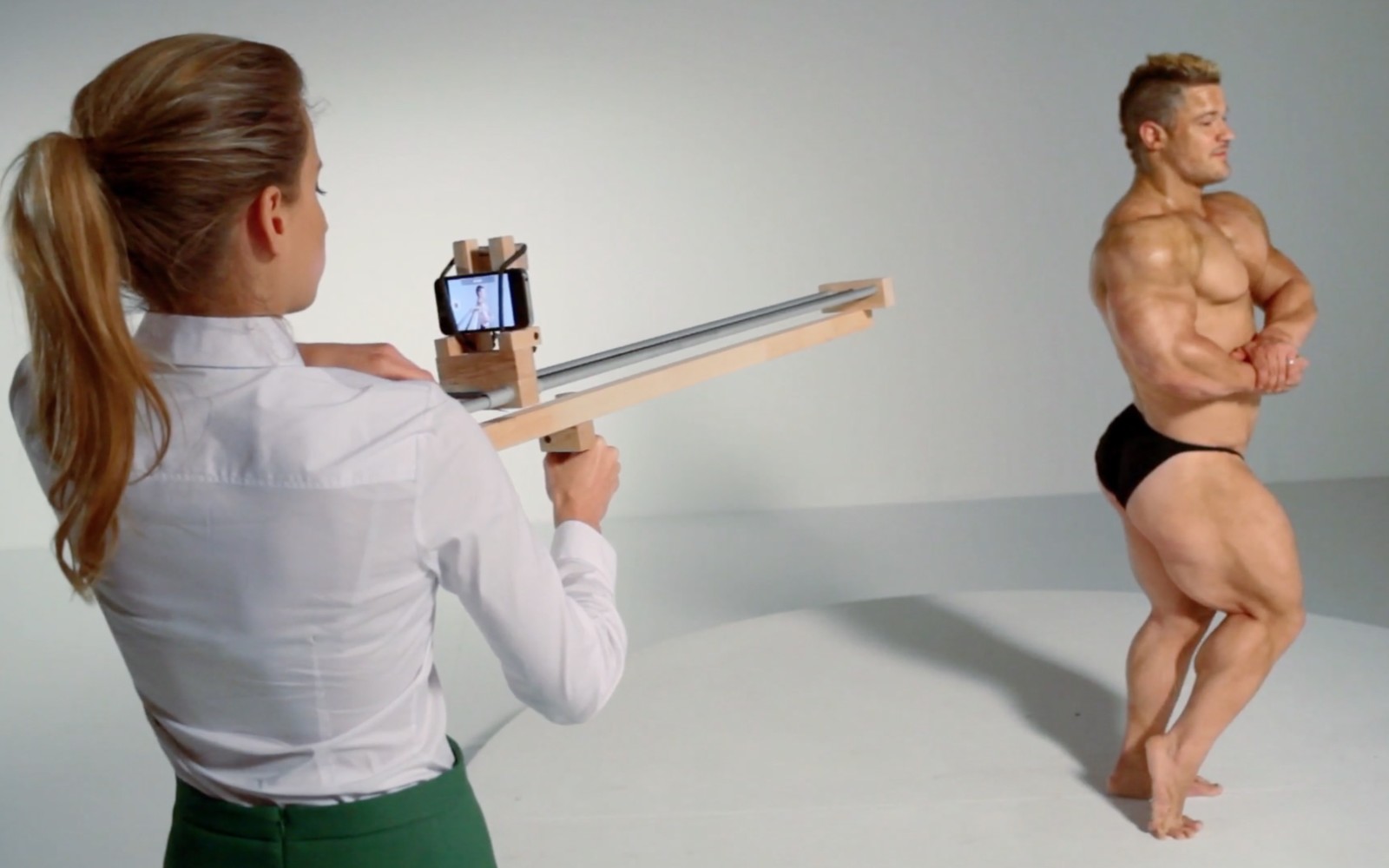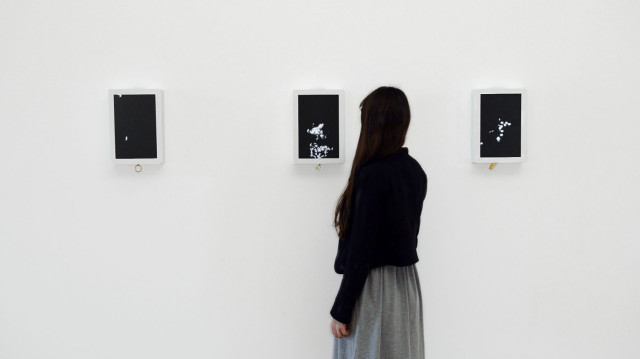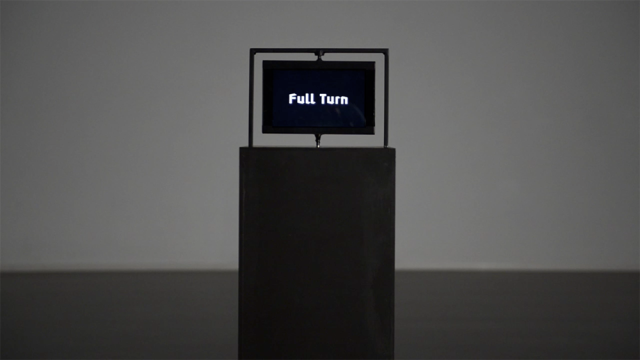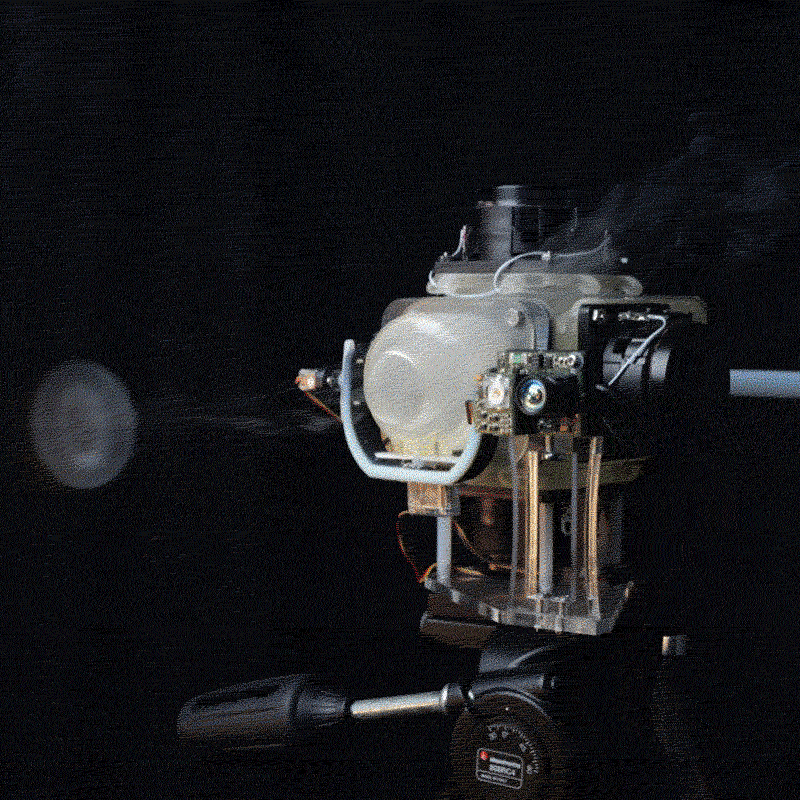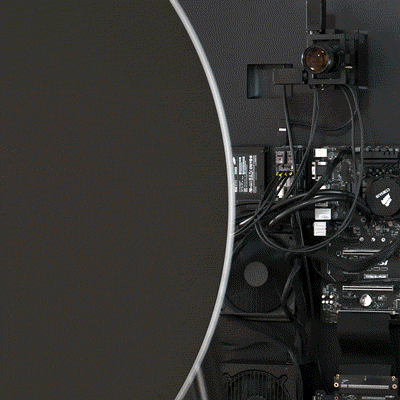/ecal (41)
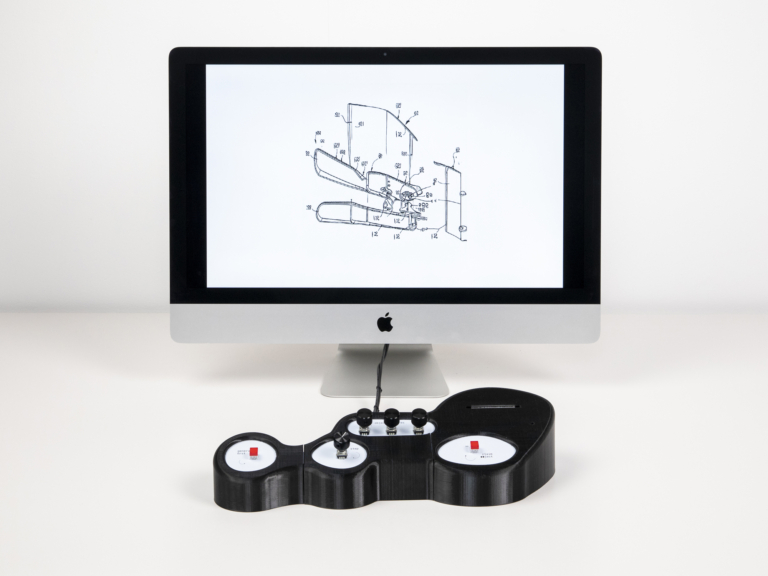
Created by Ignacio Pérez (ECAL MID), Overloaded.supply is a critical tool that questions our models of manufacturing and consumption, exploiting the control of creation algorithms in order to interrogate current patterns of design, production and legislation.
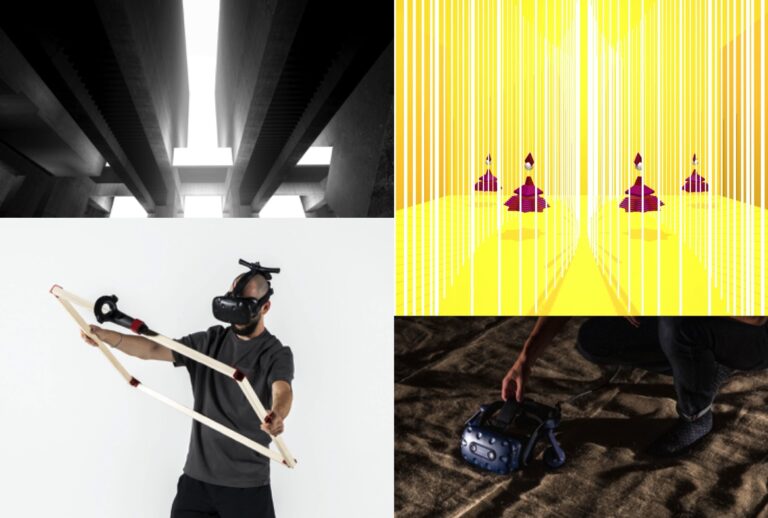
Four projects by students at ECAL (Media Interaction Design) explore the possibilities of VR. From alternative interfaces and public space to architectural interface and what its like to experience the environment of yellow ants.
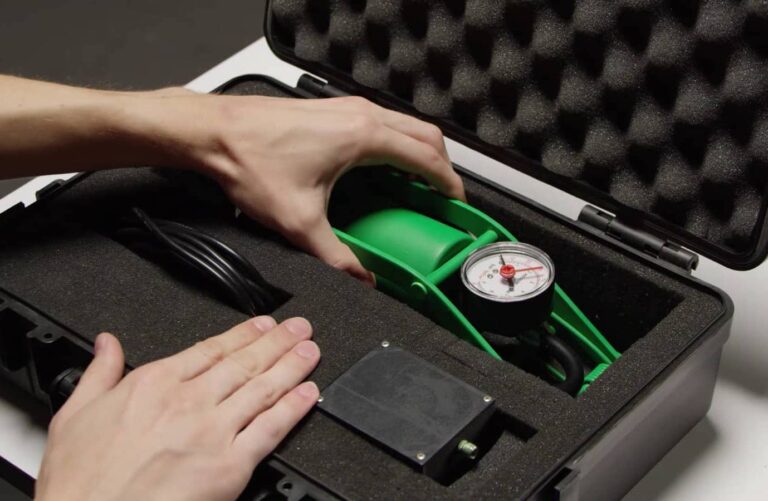
Created by Aurélien Pellegrini at ECAL , ‘Pump and Surf’ encourages internet users to find out how much energy is spent when they are surfing the internet. The user is asked to make a physical effort equal to the energy required to convey the data that will enable the site to be displayed.
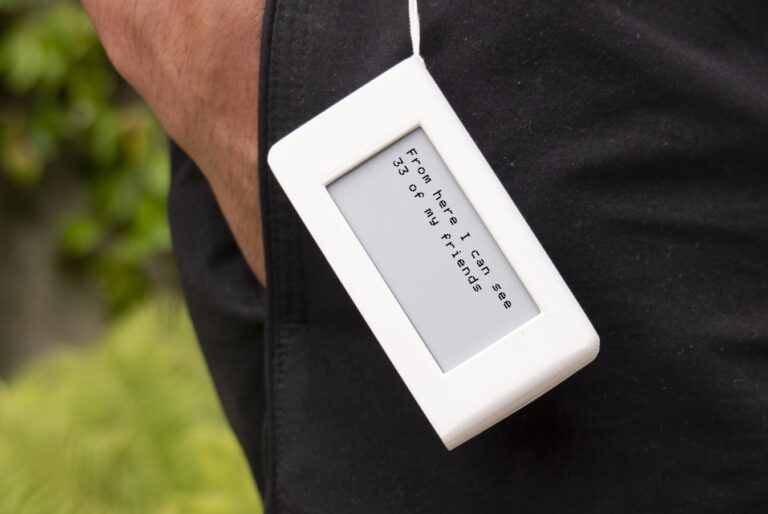
‘Invisible Network’ is a portable device that makes communication between machines perceptible and tangible. This device acts as a mediator between the user and the machines that surround him. Through its screen, it indicates the relations that it maintains with its personal environment.
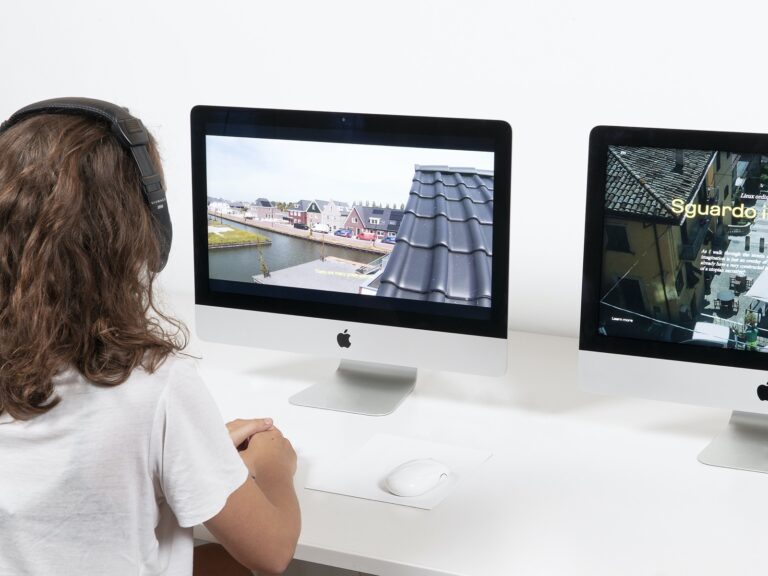
Created by Anouk Zibault at ECAL, ‘Lieux Ordinaires’ (Ordinary Places) is a project that explores new narratives of public space framed by surveillance – an alternative perspective and a medium with a power to ‘document’.
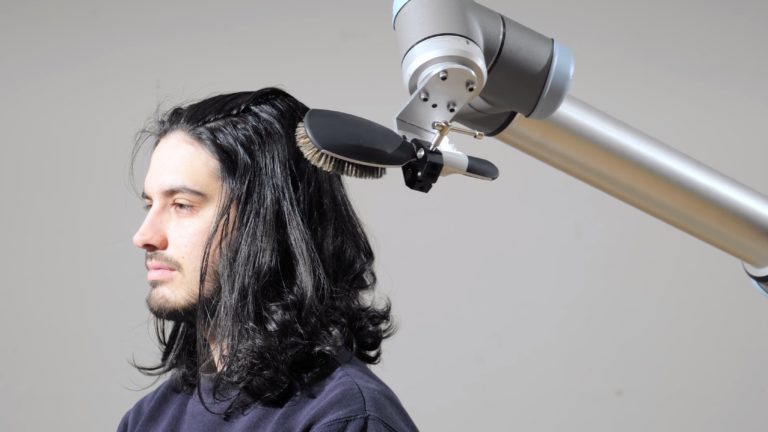
Created at ECAL during a one week workshop led by Thibault Brevet, The Center for Counter-Productive Robotics is a collection of experiments where a robot was programmed to perform counter-productive tasks, with intention to develop a more human-centric approach to robotics.
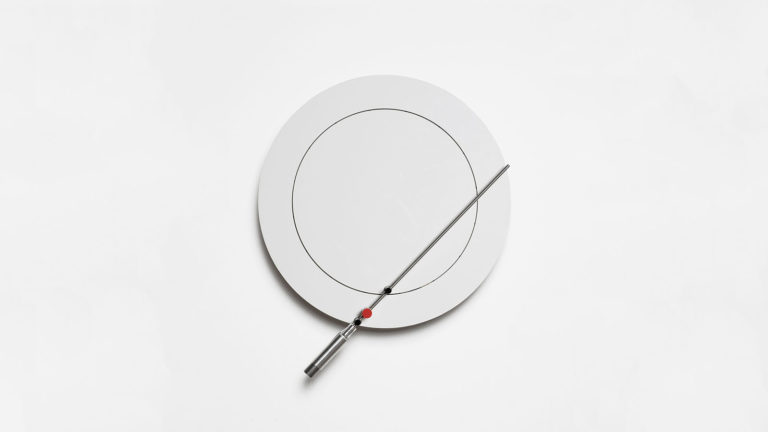
Created by André Andrade at ECAL (Media and Interaction Design Unit), 300000 km/s is a data visualisation project to highlight the consequential delay in communication in the probable future (interplanatory) expansion of the territory of Man.
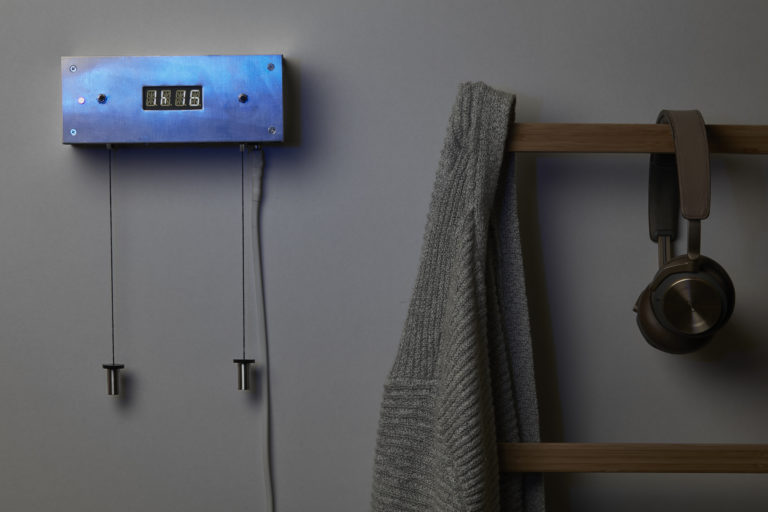
Created by Giulio Barresi at ECAL (Media and Interaction Design Unit), Connected Tools is a series of objects that explore alternative rituals that could lead to a more reasonable consumption of mobile technologies.
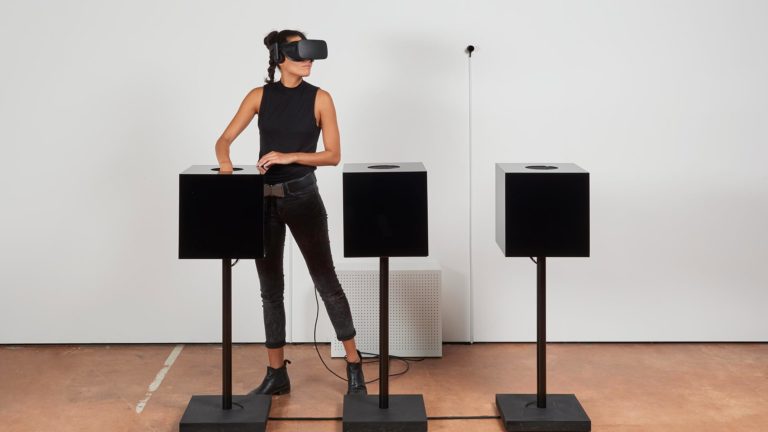
Created by Stella Speziali at ECAL, Tangibles Worlds explores the effects of tactile experience as a catalyst for full immersion in VR. It proposes a “black box” interface, an alt-plysical-universe to the VR experience, extending the immersion beyond visual and sound.
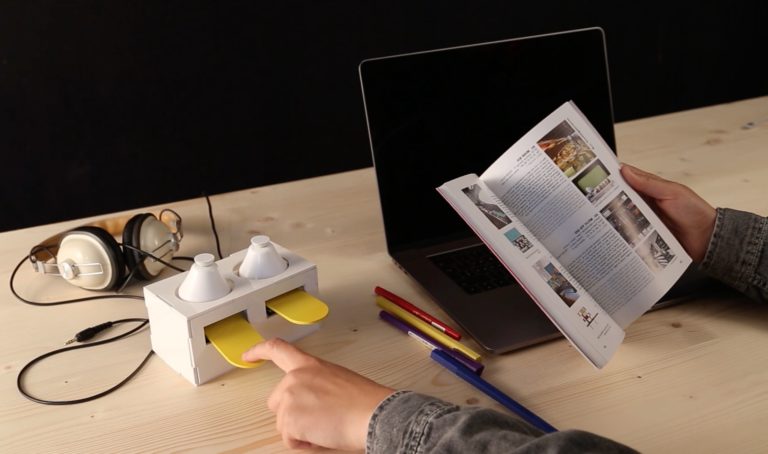
Created by Elise Migraine at ECAL, “Twin Objects” is a collection of devices (Tits Me, Pianoze, and Dual Drums) designed to act as a ‘hotline’ in attempt to nurture intimacy and telepresence that long-distance relationships need.
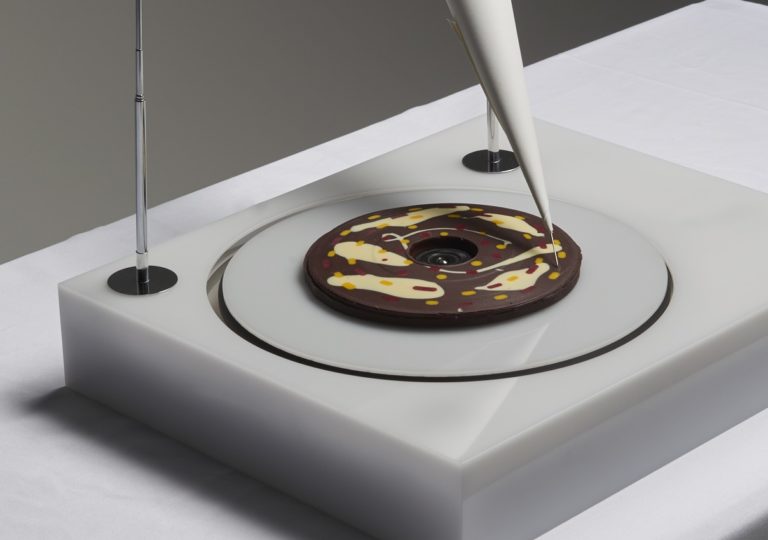
‘Déguster l’augmenté’ is a collaborative project by Erika Marthins with ECAL (Bachelor Media & Interaction Design) that questions if food could be augmented and technology provide a new dimension to how we experience a meal.
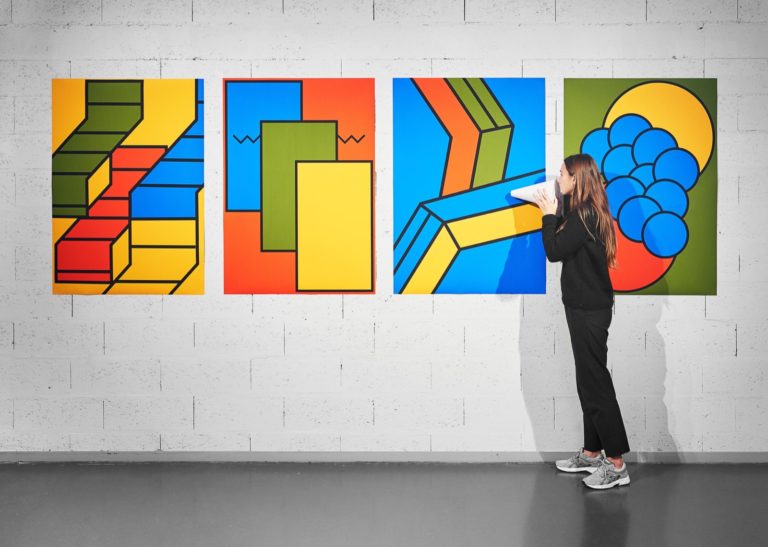
Created by the ECAL’s Bachelor Media & Interaction Design students at ÉCAL, and led by Niklas Roy, Bouquet is a synaesthetic olfactory device which allows the user to perceive color through fragrances.
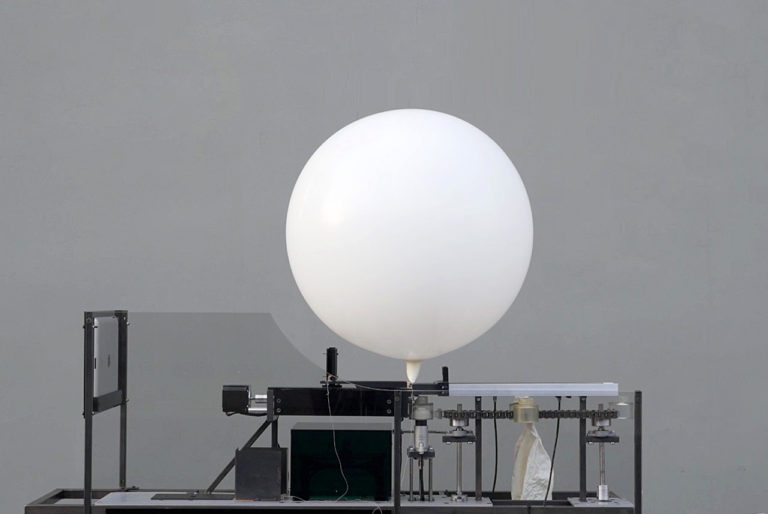
A complete redesign of his 2014 Jean Tinguely-inspired project, David Colombini’s Attachment is a “poetic machine” that renders physical manifestations of user-generated digital messages (text, images, or videos) and sends them off via biodegradable balloons.
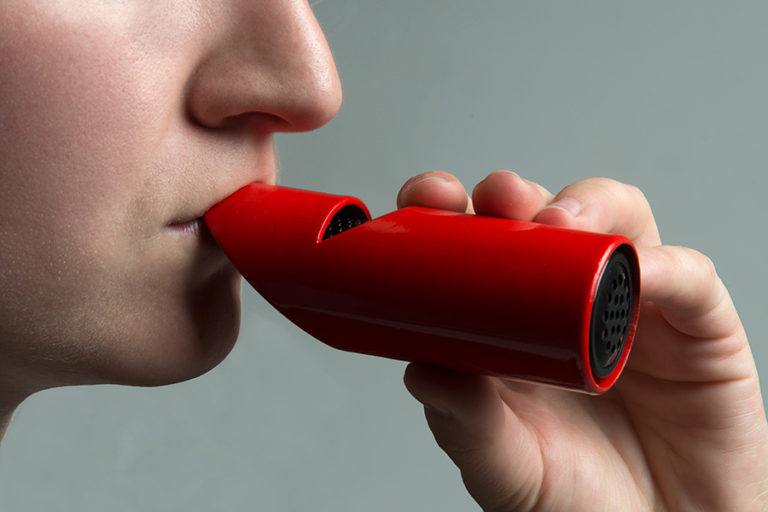
Created by Lara Defayes at ECAL, UV Map, Vanishing Shades and FOMO Survival Kit are a series of project produced during her studies at the art and design school in Lausanne, Switzerland. All three projects, and others that can be viewed on her website, explore the contradictions and opportunities of digital in physical.
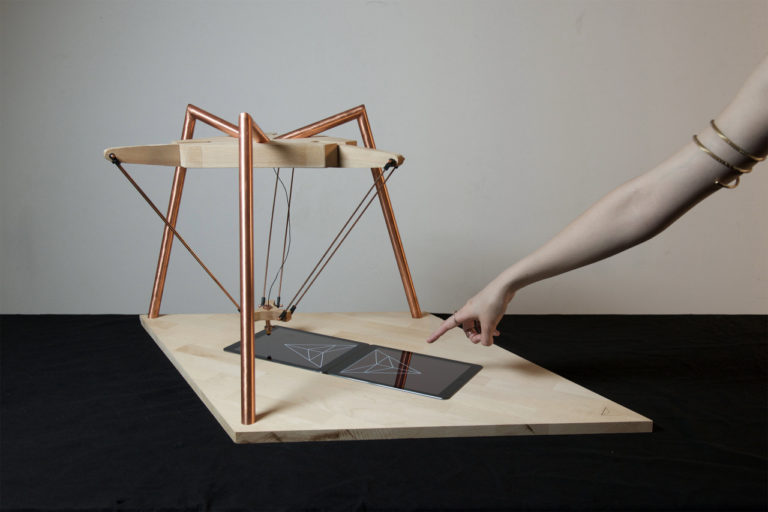
Created by Alexia Léchot at ECAL, Deltu is a delta robot with a personality that interacts with humans using two iPads. Created using arm technology normally found in 3d printers, Deltu uses three different applications on the iPad Alexia built for it, using symmetry as an interpretation, a mirror and a reflexion of our own image.
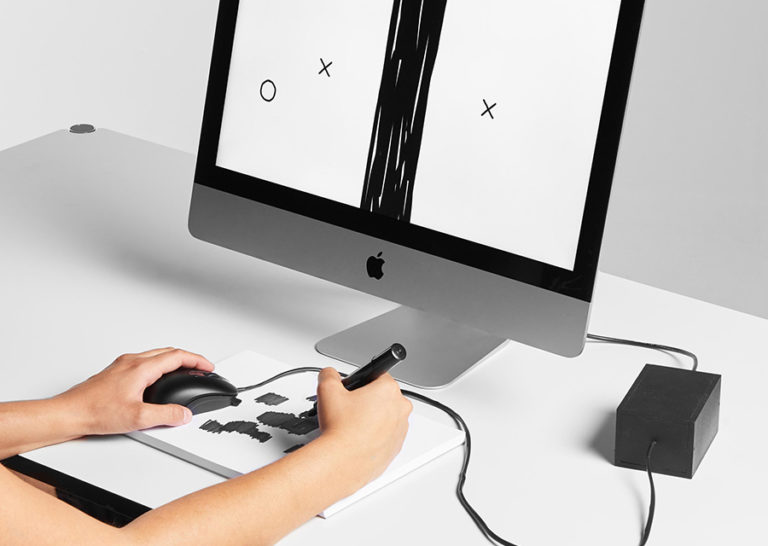
Created by Mylène Dreyer at ECAL, Scribb is a computer game in which the physical area scanned by the mouse is an integral part of the interaction. The player must draw black areas, detected by the mouse, to be able to evolve in the game, simultaneously managing the position of the mouse and the surface on which it is placed.
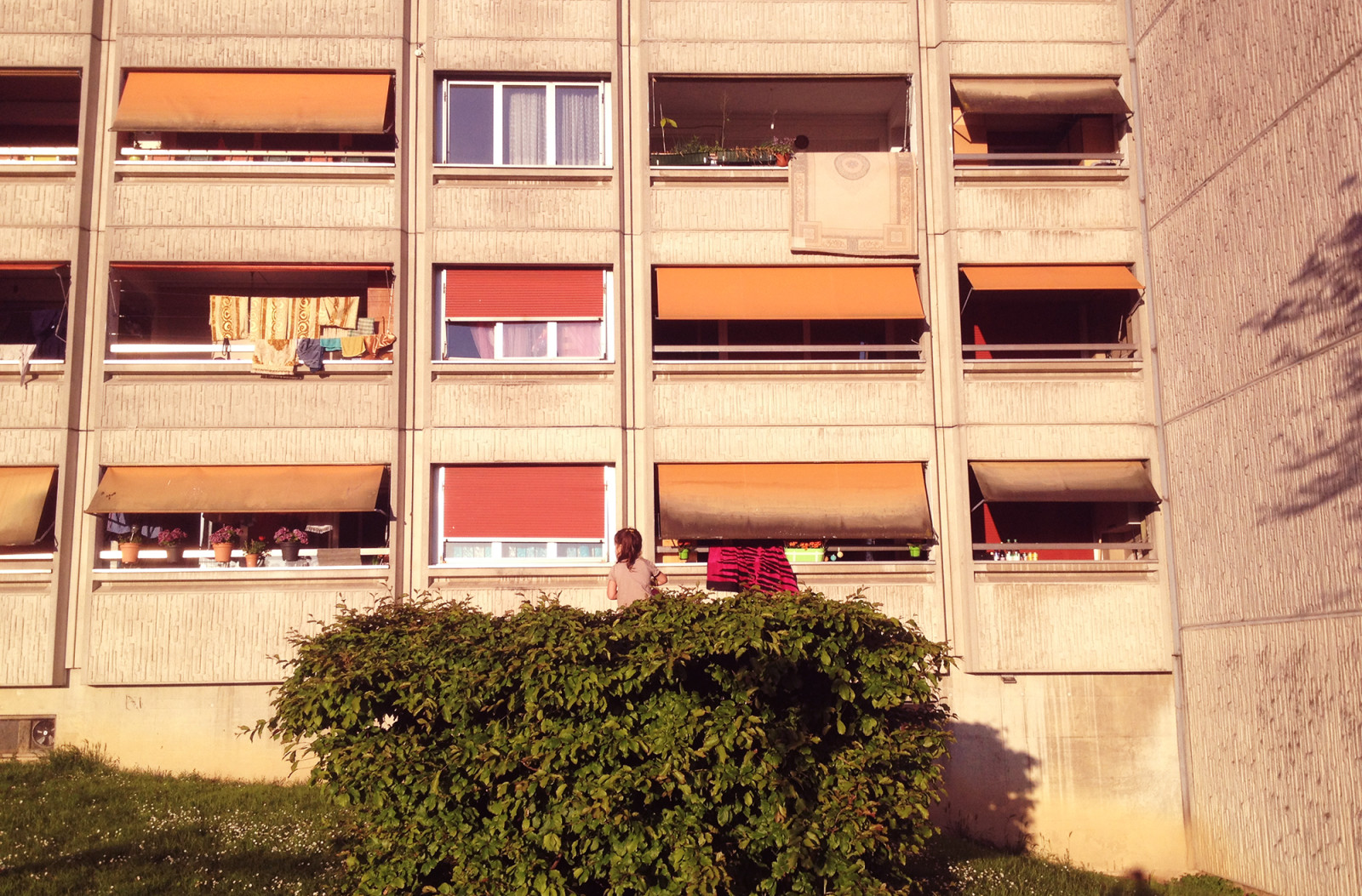
Created by Sebastian Vargas at ECAL (Bachelor Media & Interaction Design), Postgram is a bot for human storytelling that explores issues of public data, privacy and image making using a process of “fair hack” to develop a story narrative. It speculate about the social network behaviour and search for new possibilities for film content.
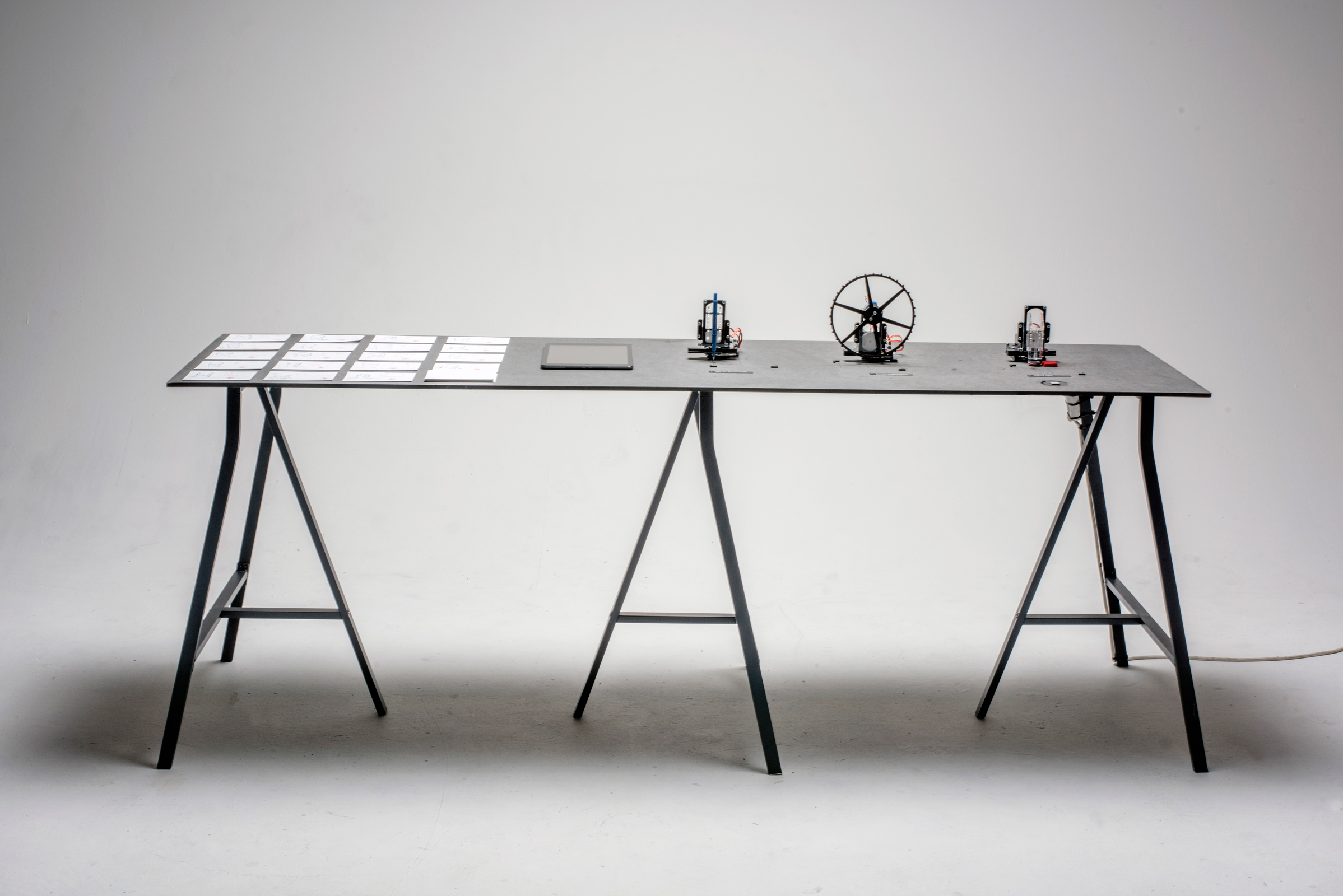
Created by Martin Hertig at ECAL, Sensible Data is a playful installation consisting of three machines that collect user’s personal data, evaluates mood, age, gender and beauty, to create a ‘passport’ that user can take away but which also randomly sent (without user’s knowledge) to another participant.
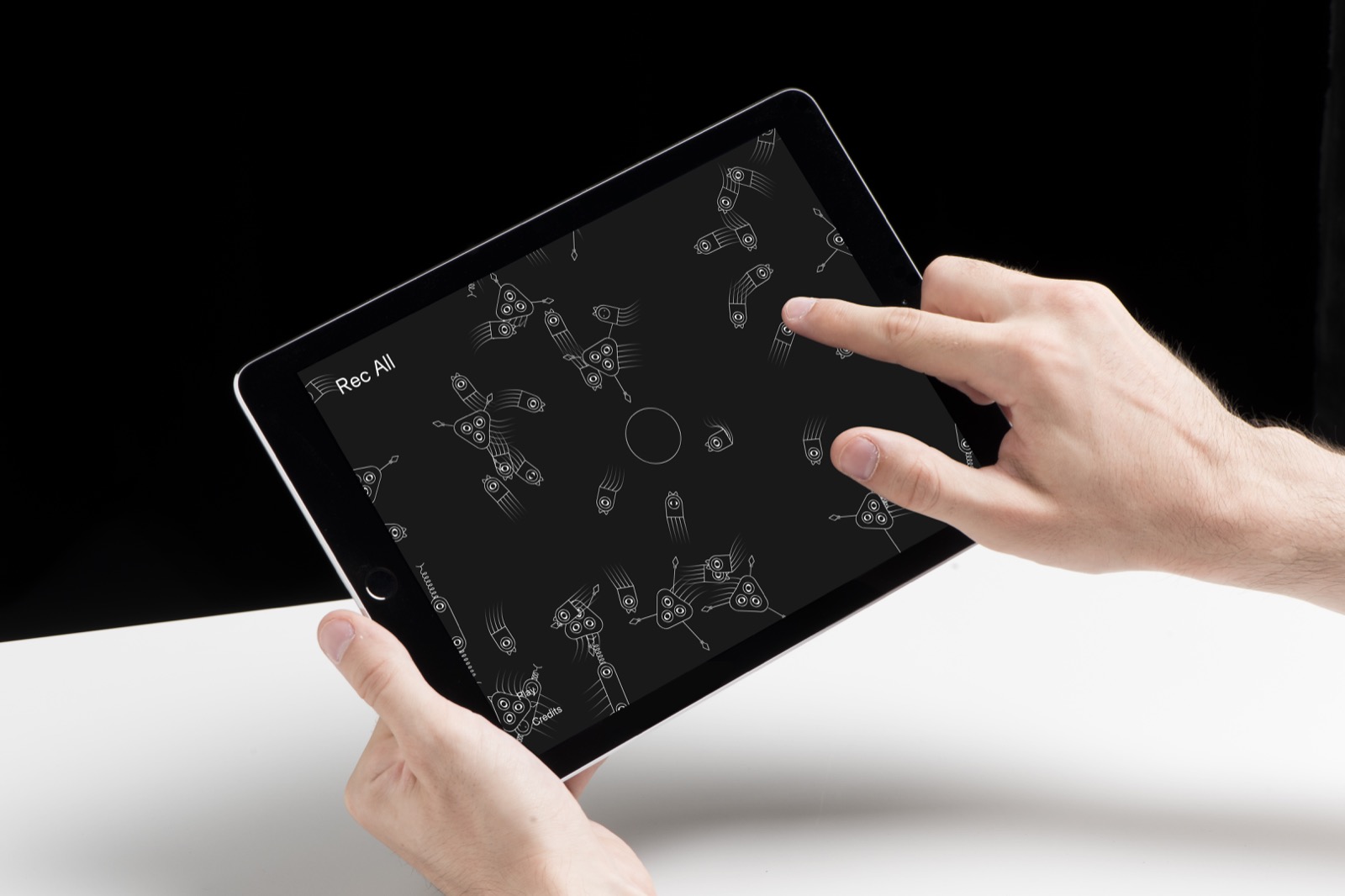
Created by Romain Cazier at ECAL, Rec All is an interpretation of the geometrical style puzzle games, widely popular on mobile. Taking some of this genre’s features, Romain designed a singular universe, where strange creatures with a cyclic behaviour are generated from a simple gesture.
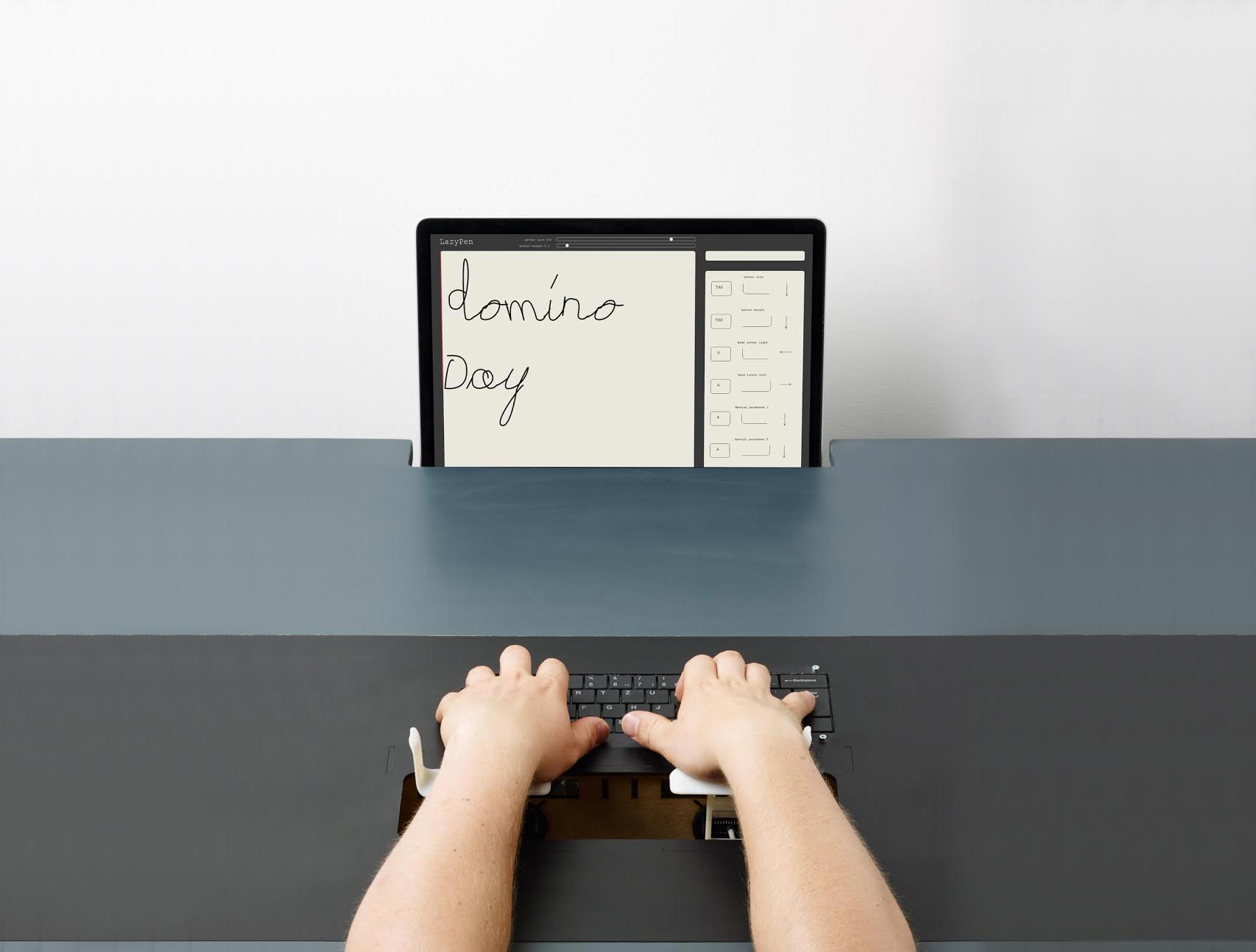
Created by Nicolas Nahornyj at ECAL, Lazy Pen is an attempt to combine the practical side of computer-based word processing with the emotional aspect of one’s handwriting. The tool allows the user to distort the typeface as they write, using the moving palettes placed beneath their palms.
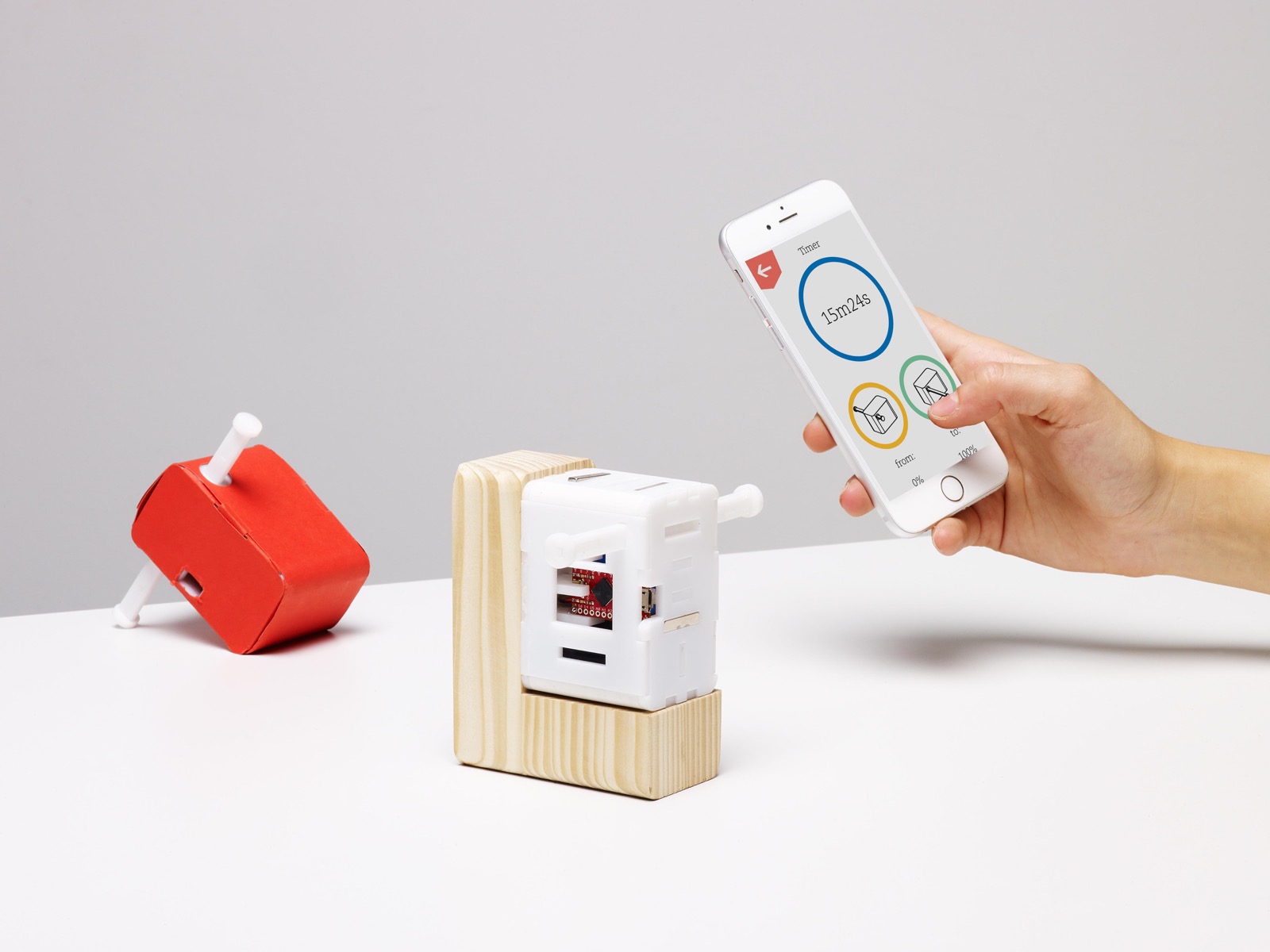
Created by Maxime Castelli at ECAL (Bachelor Media & Interaction Design), Nelson is a tiny connected module designed to bring life remotely to everyday objects. It’s based on a very simple foreward and backward movement as we do in the everyday life, like pushing a switch.
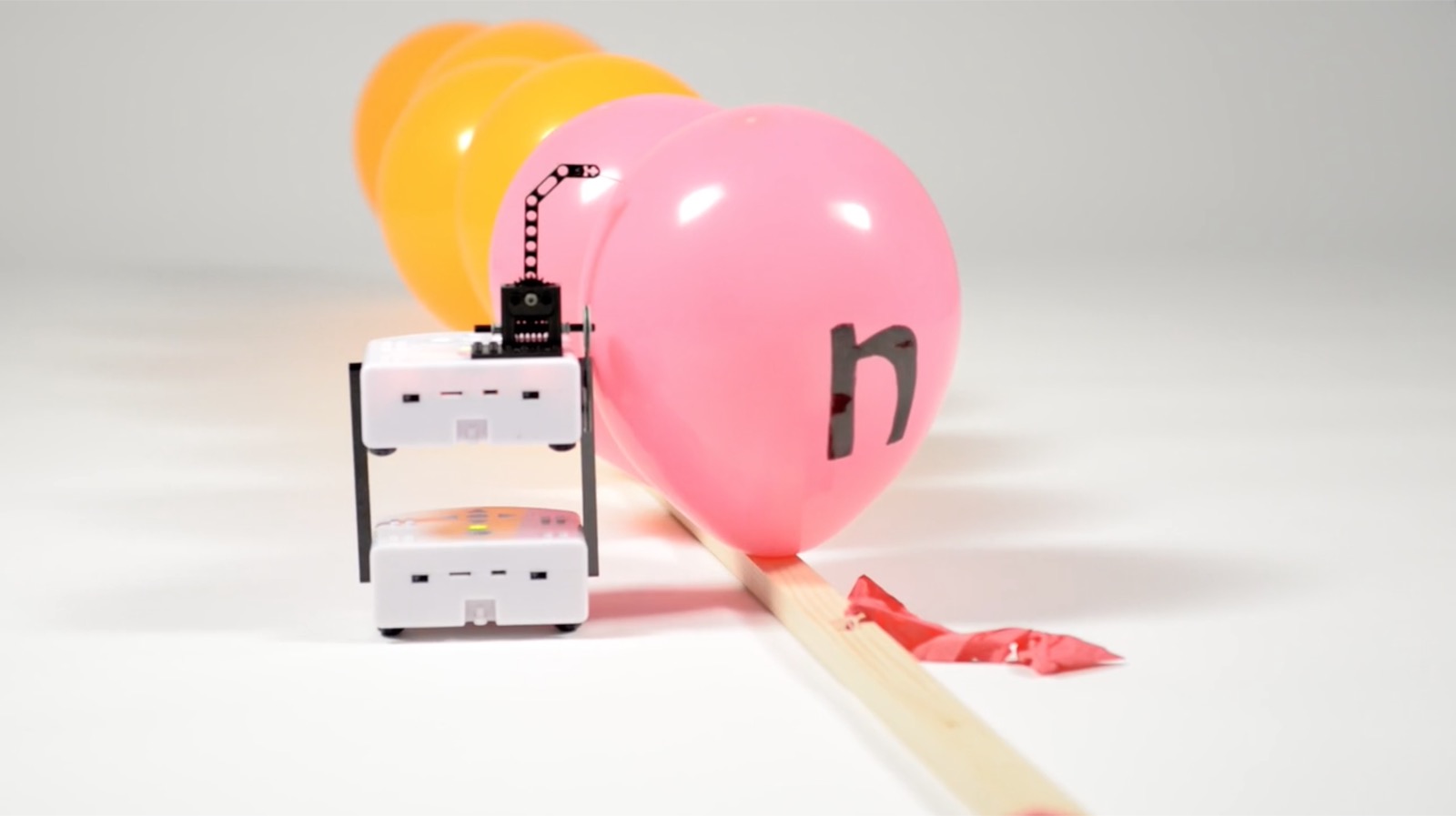
Earlier this year at ECAL (Lausanne/Switzerland), students were asked to develop projects using the Thymio robot during a one week workshop. Students worked then in group with the task to make Thymio(s) write a word, all those words was then put together to form a sentences that you can discover in the video below.
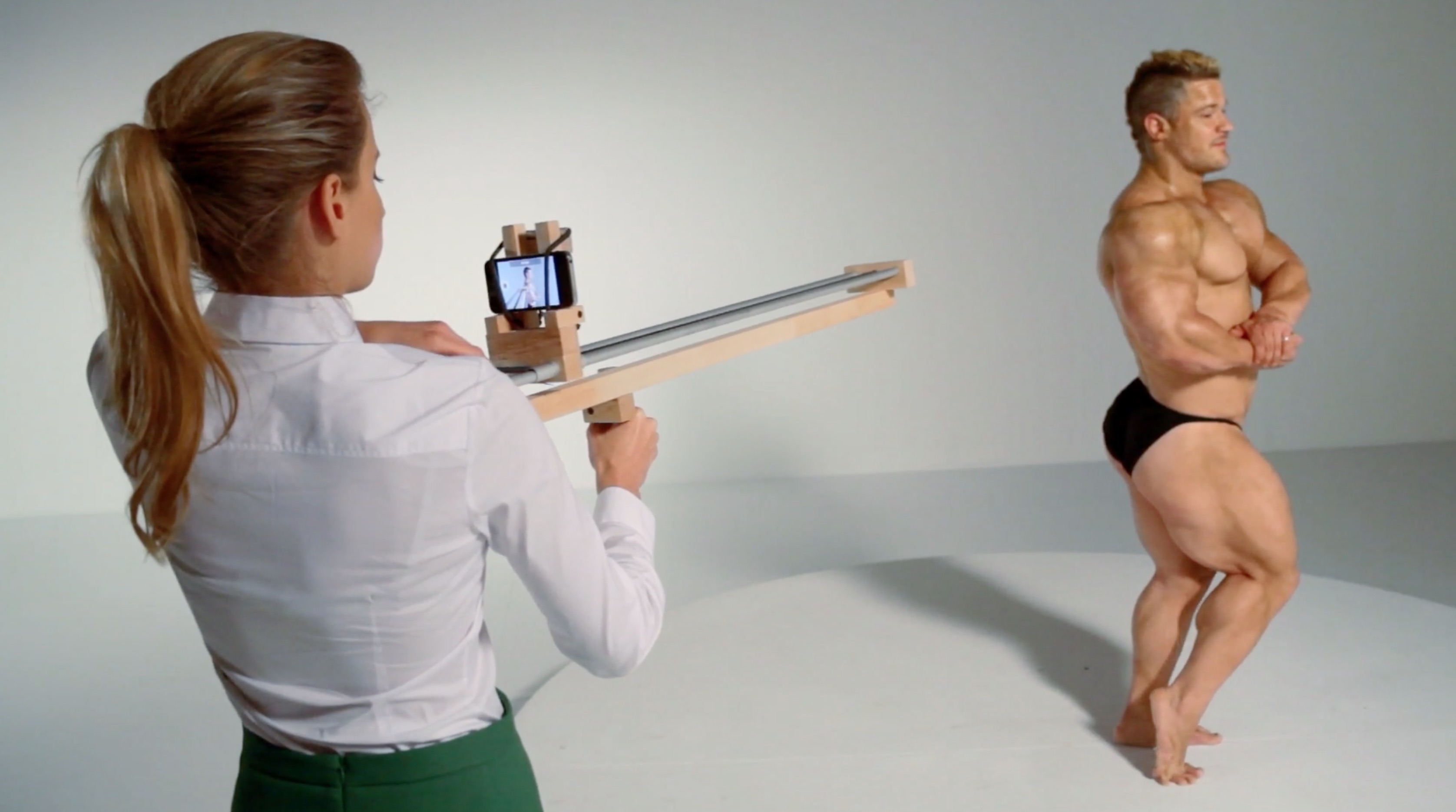
Created by the Bachelor Photography and Master Product Design students at ECAL, #PhotoBooth is a project and a series of interactive installations showing how mobile phone cameras and the selfie phenomenon changed the way we look at ourselves.
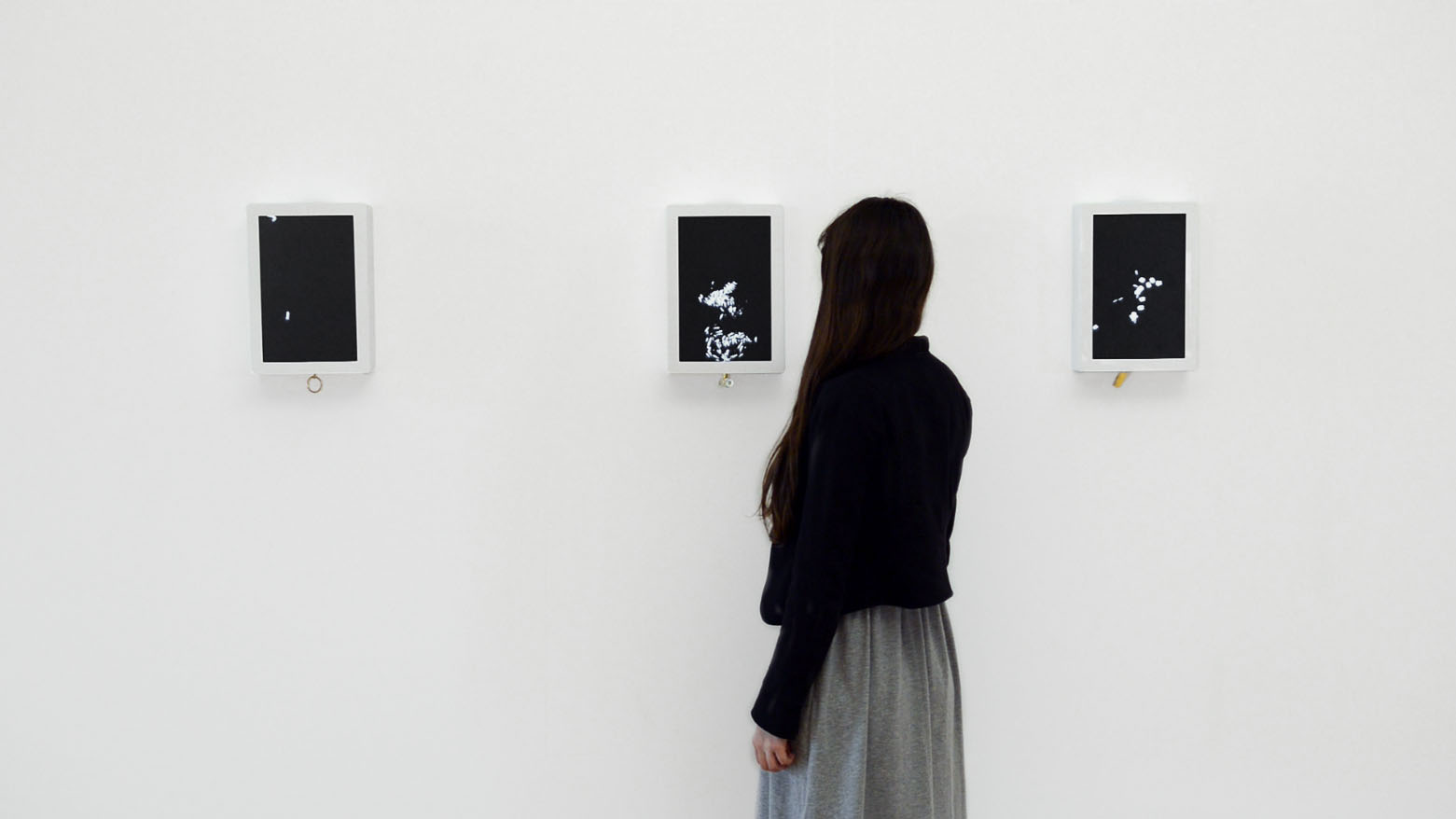
Rewind is a digital clock collection designed to revive a physical link with the reading of the time. For all three clocks, a unique way to rewind its mechanism is introduced making the stronger and more meaningful connection between the physical and the digital.
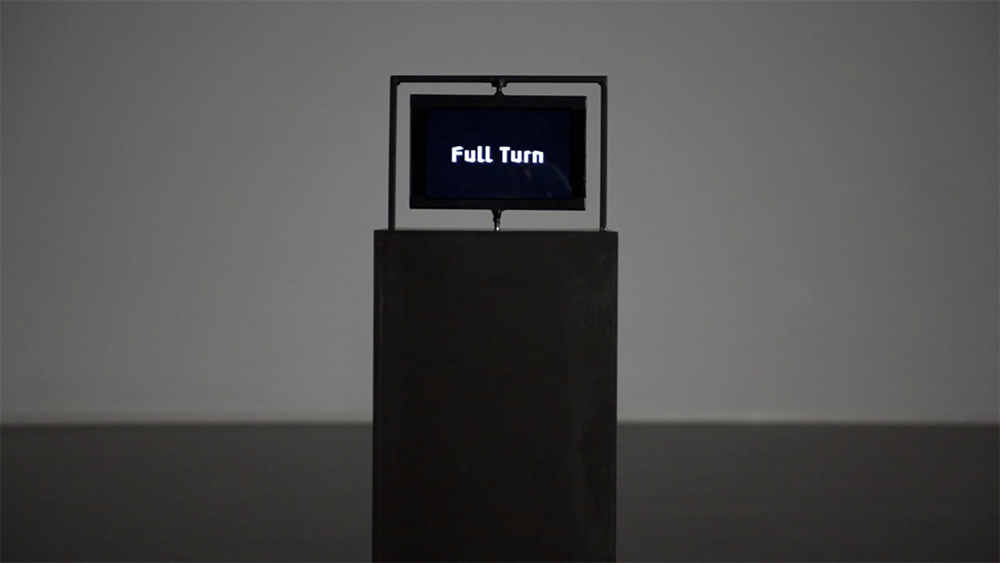
Created by Benjamin Muzzin for his Bachelor Media & Interaction Design at ECAL, Full Turn explores the third dimension using the frame of a flat screen. By rotating screen around its central point at very high speed, Benjamin is able to create and manipulate forms in three dimensions that can be seen 360 degrees.

